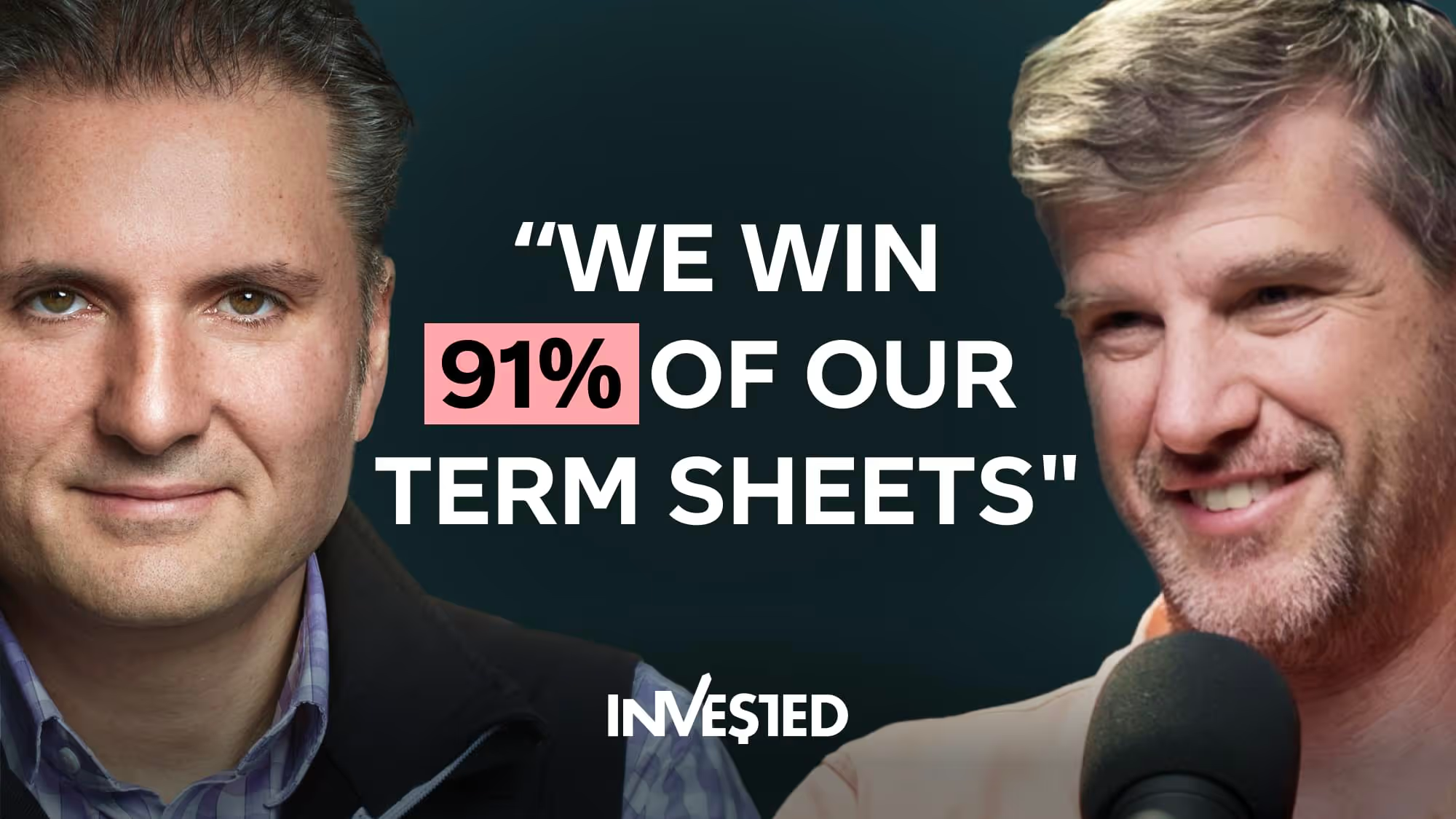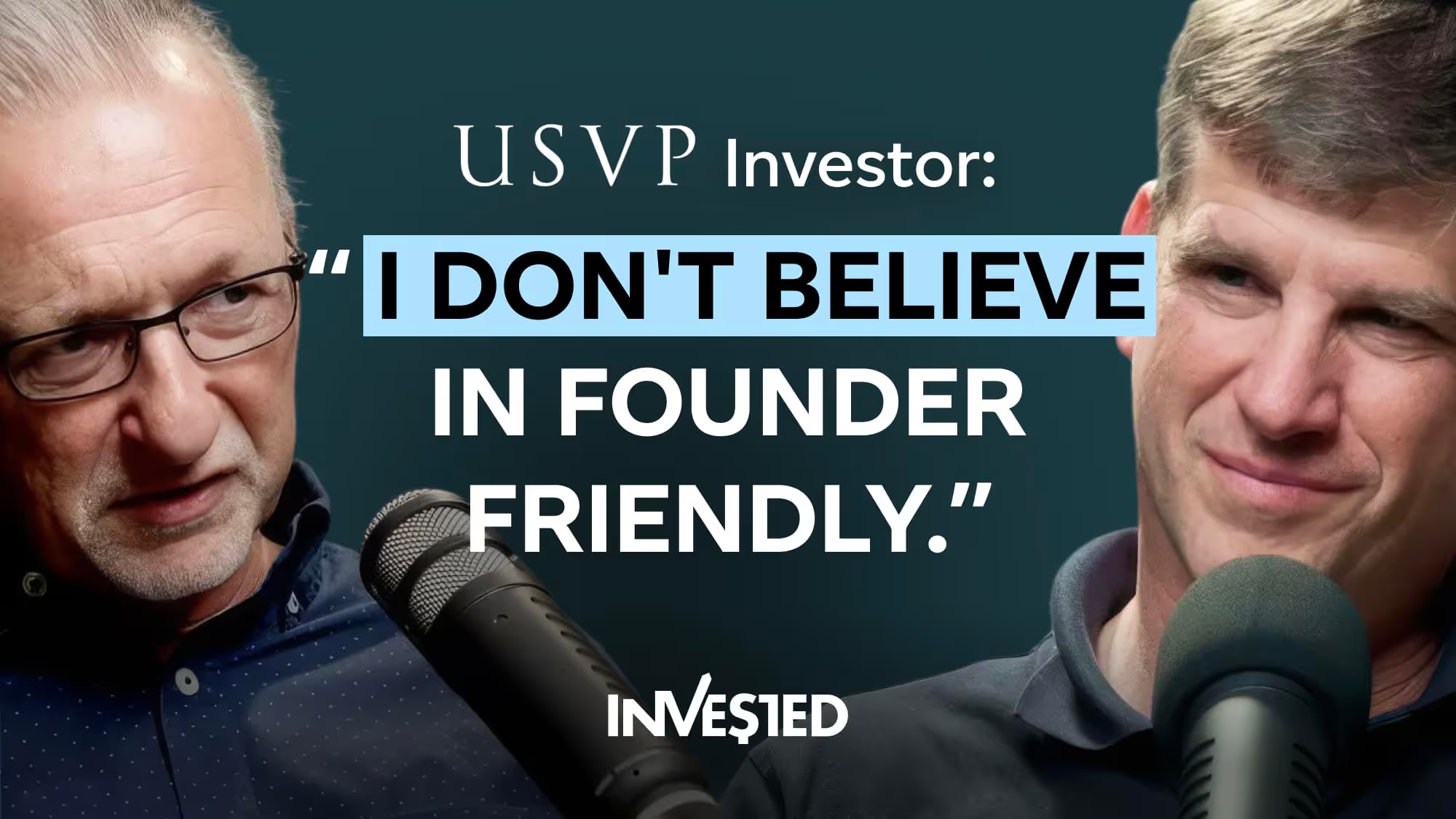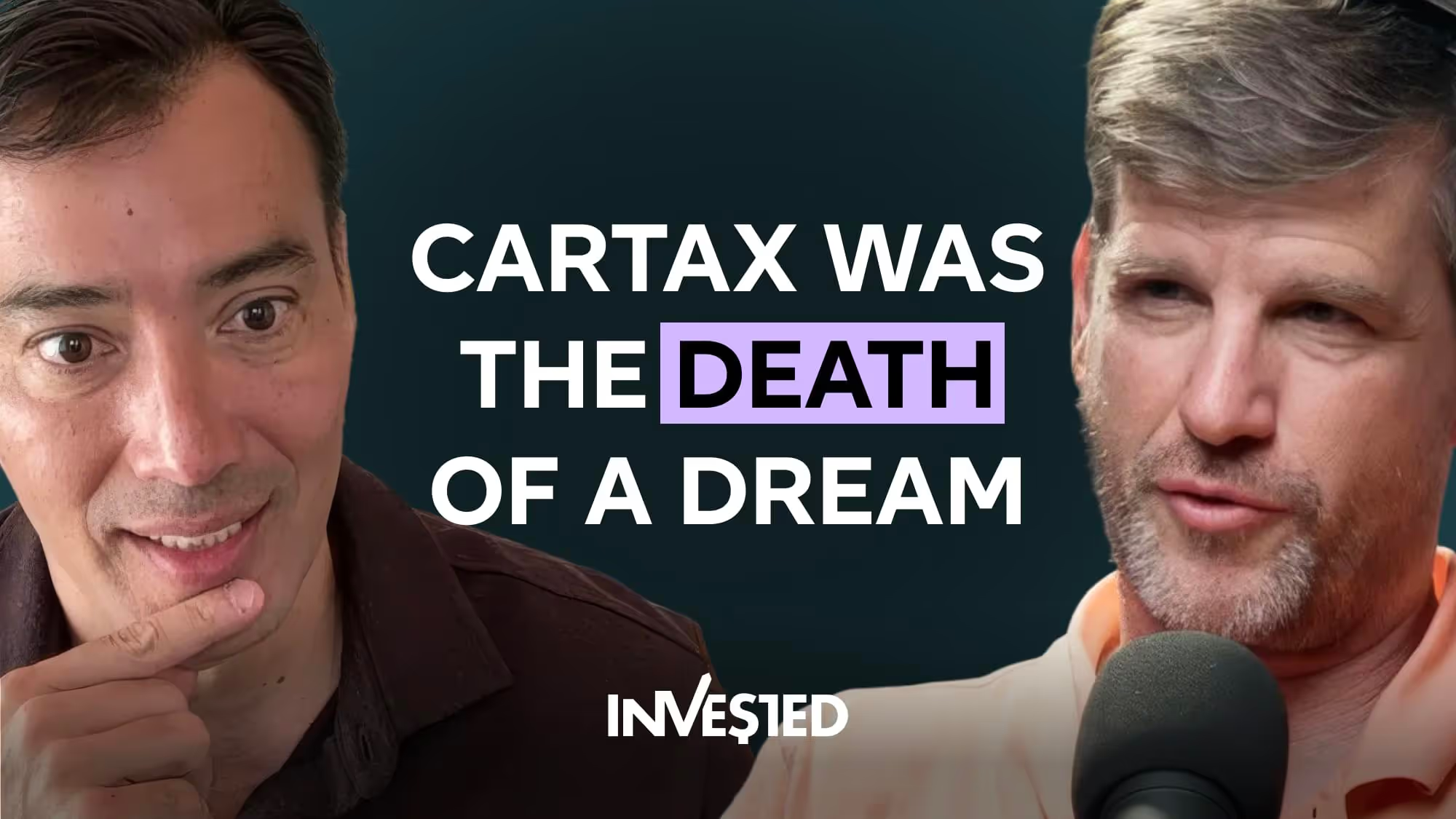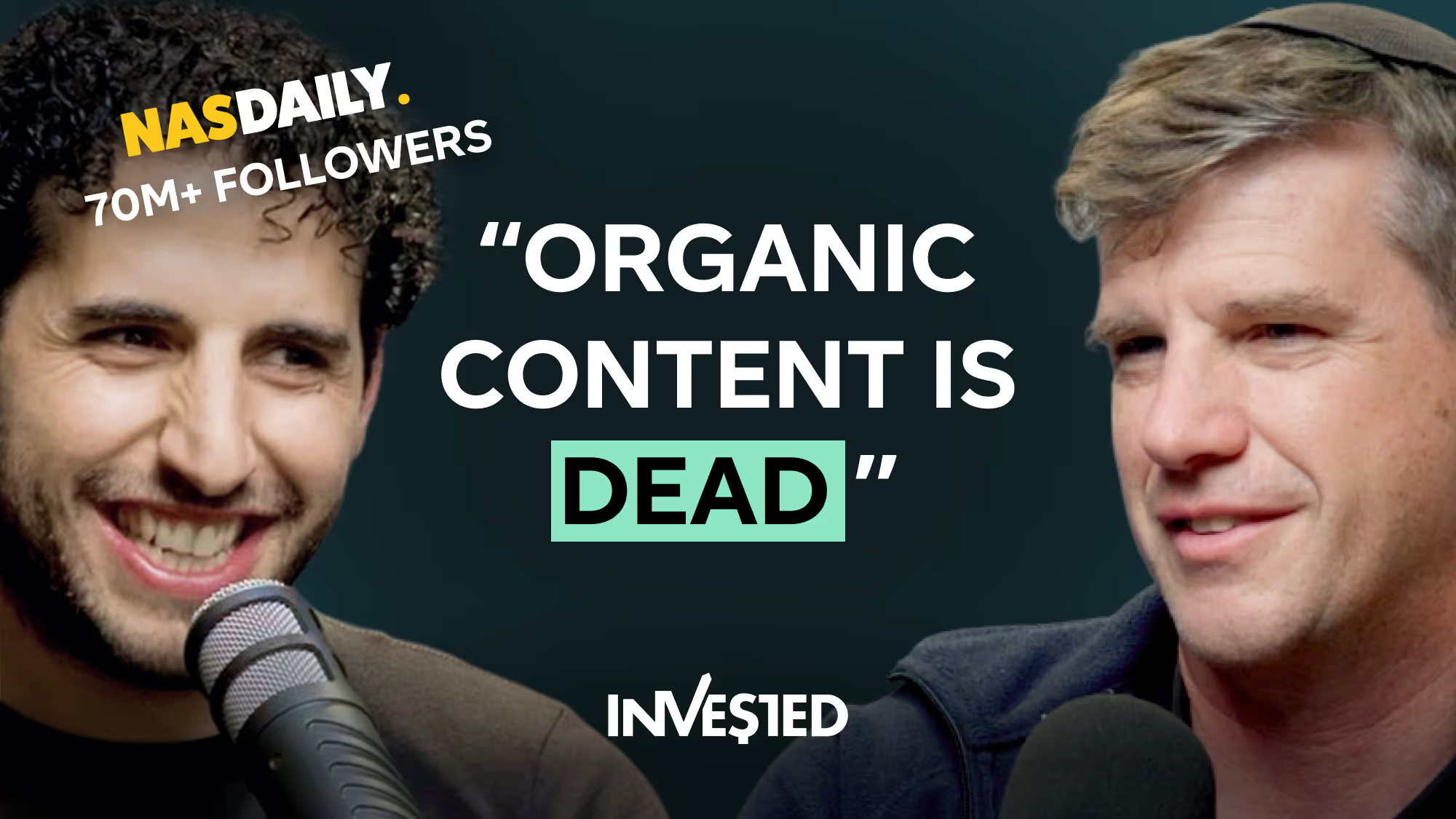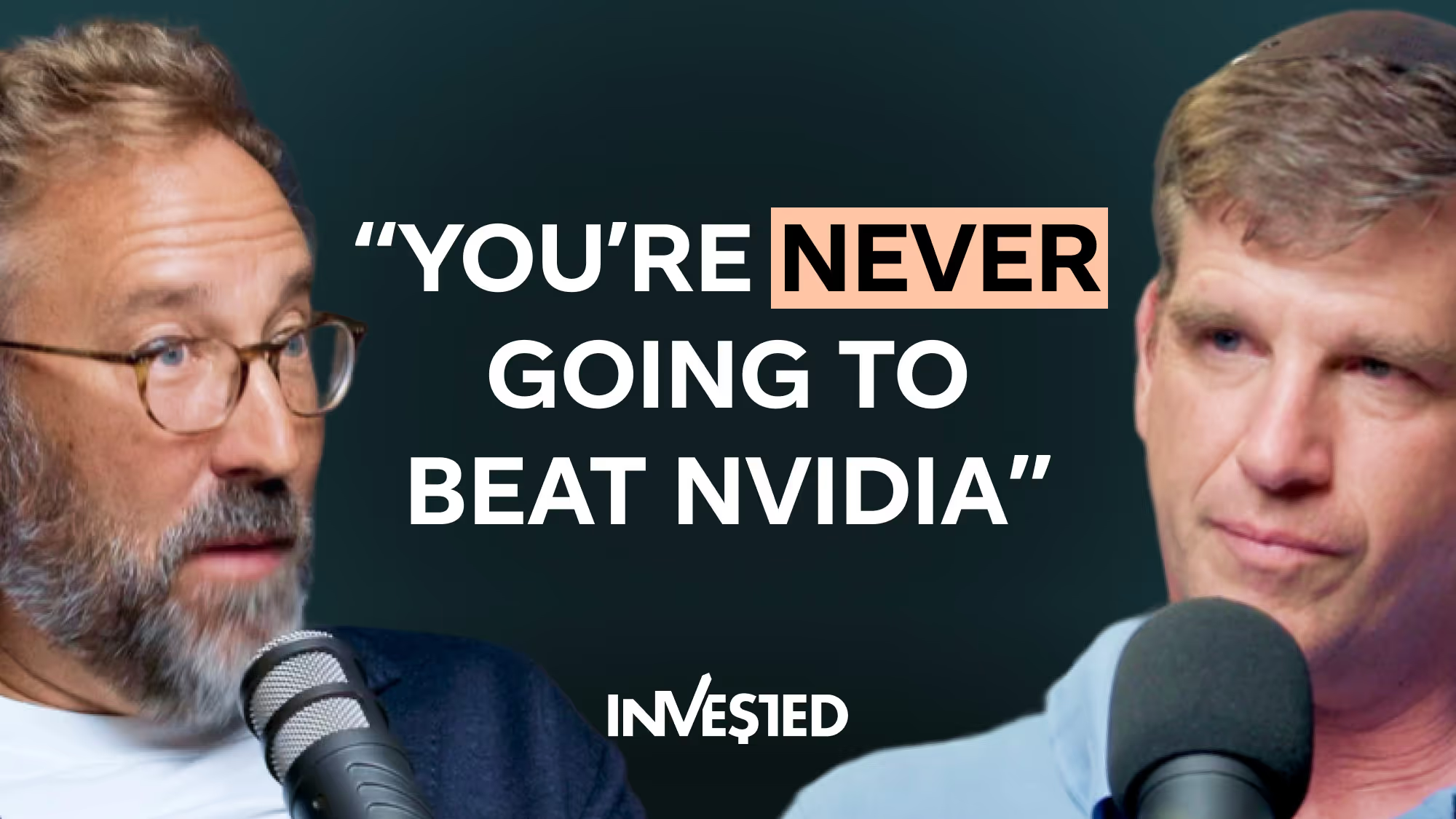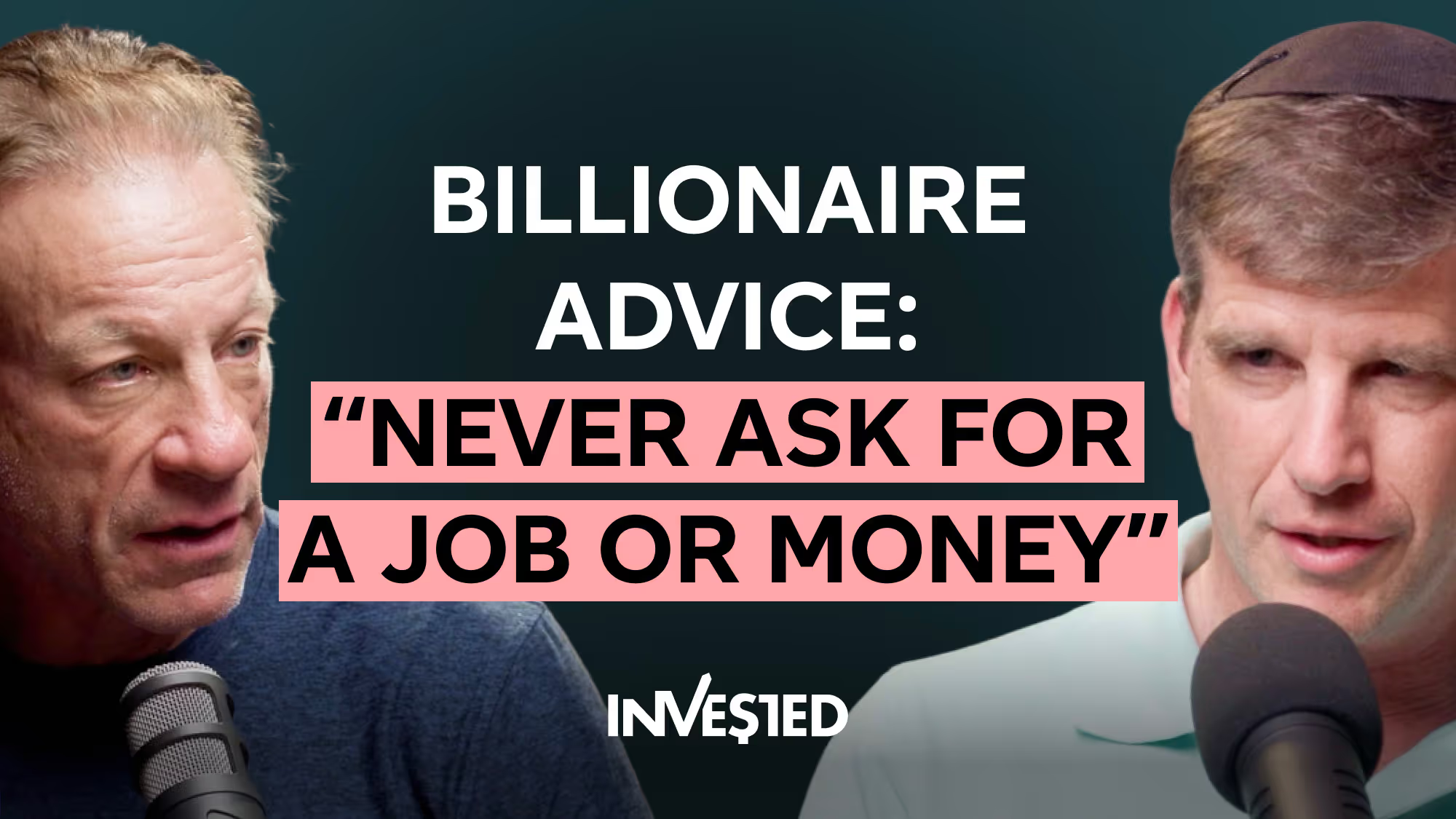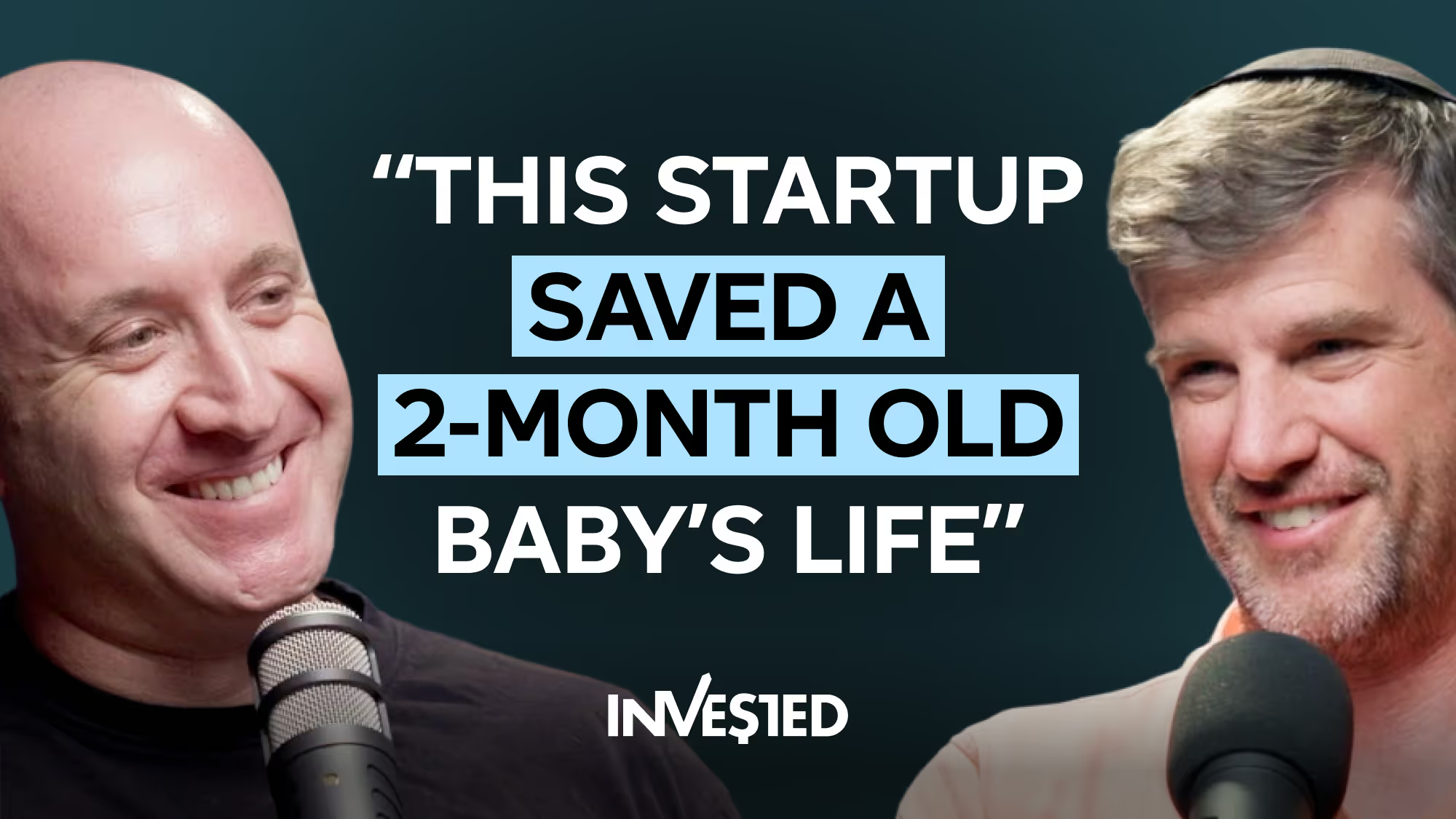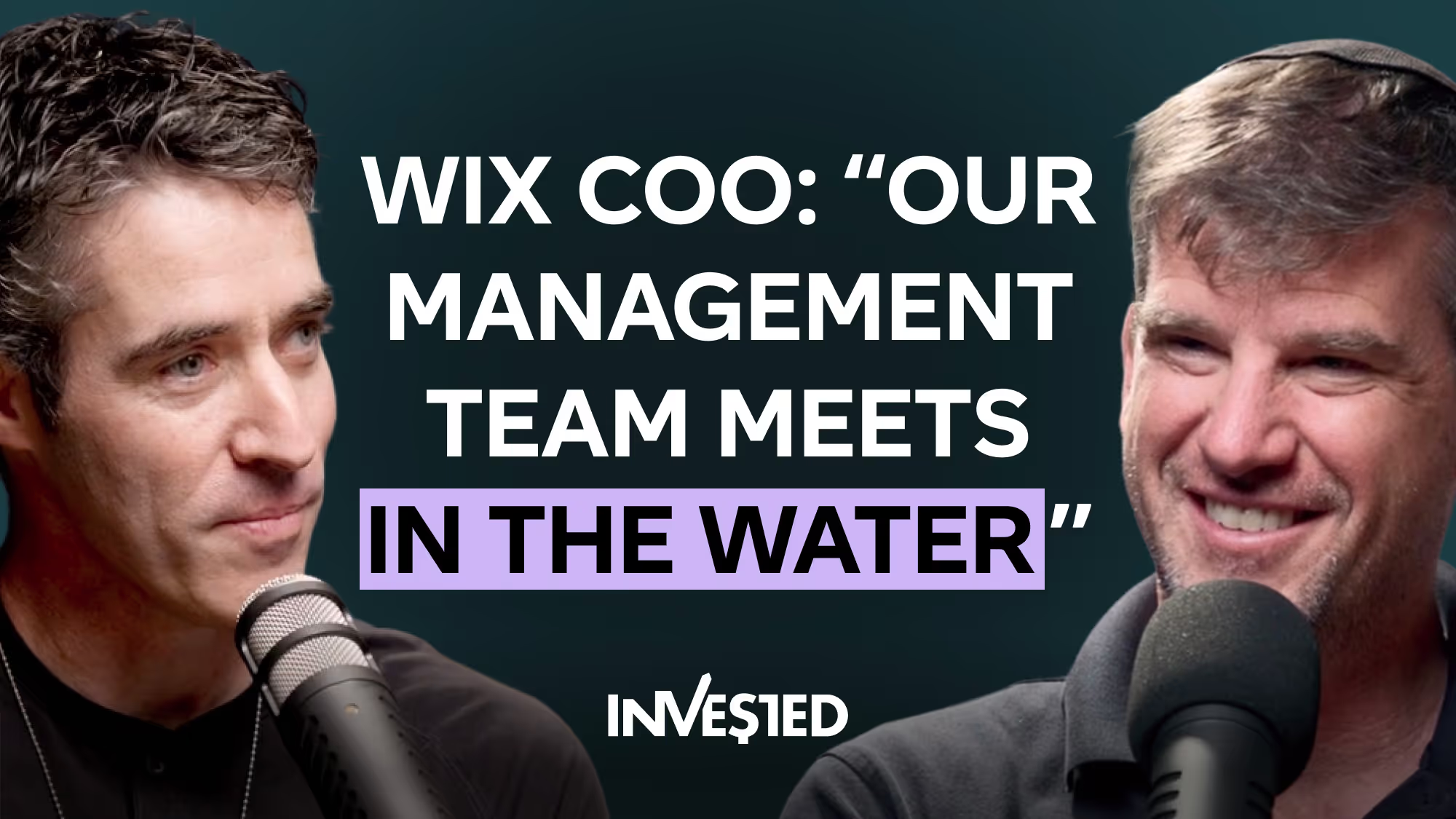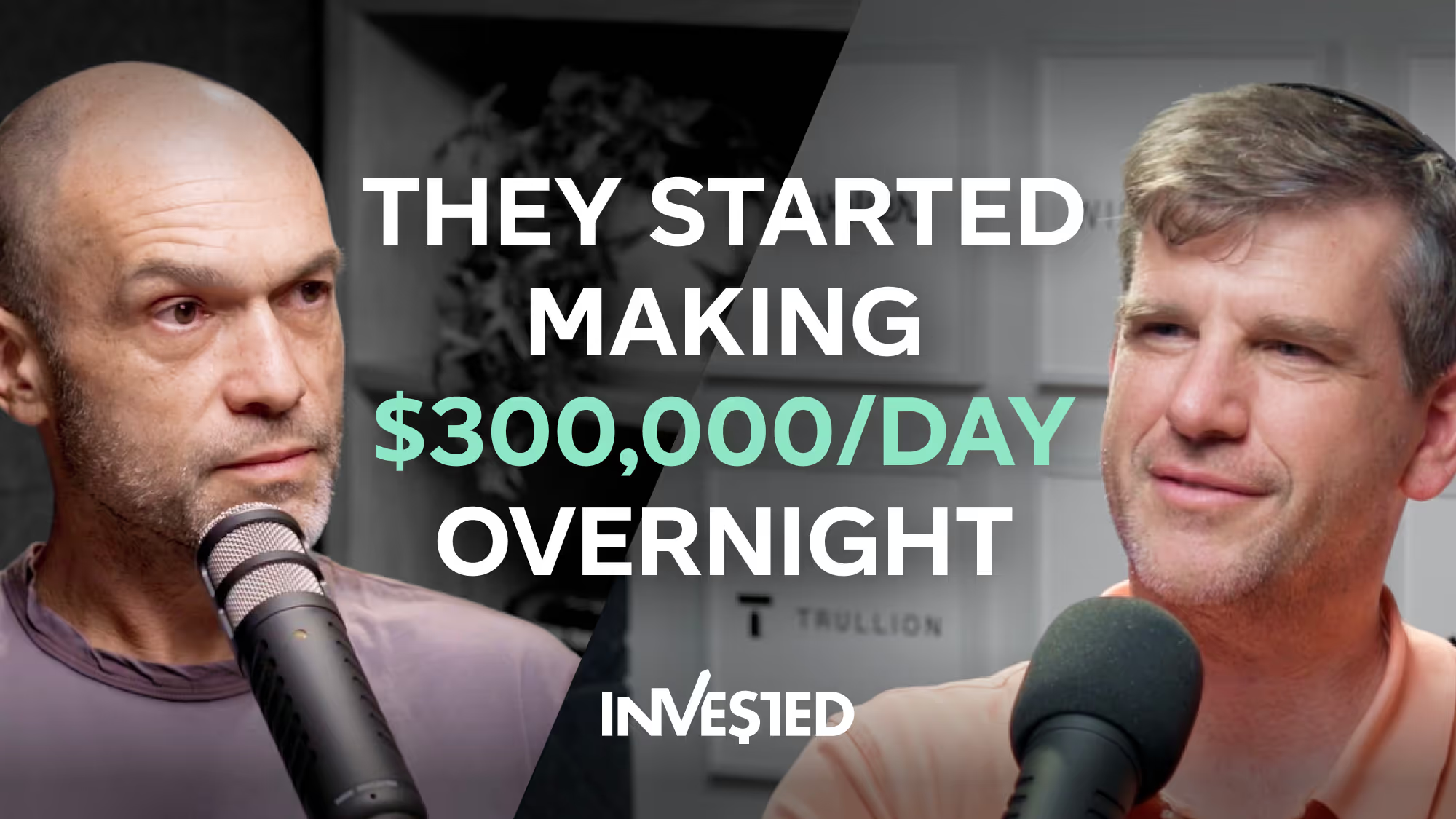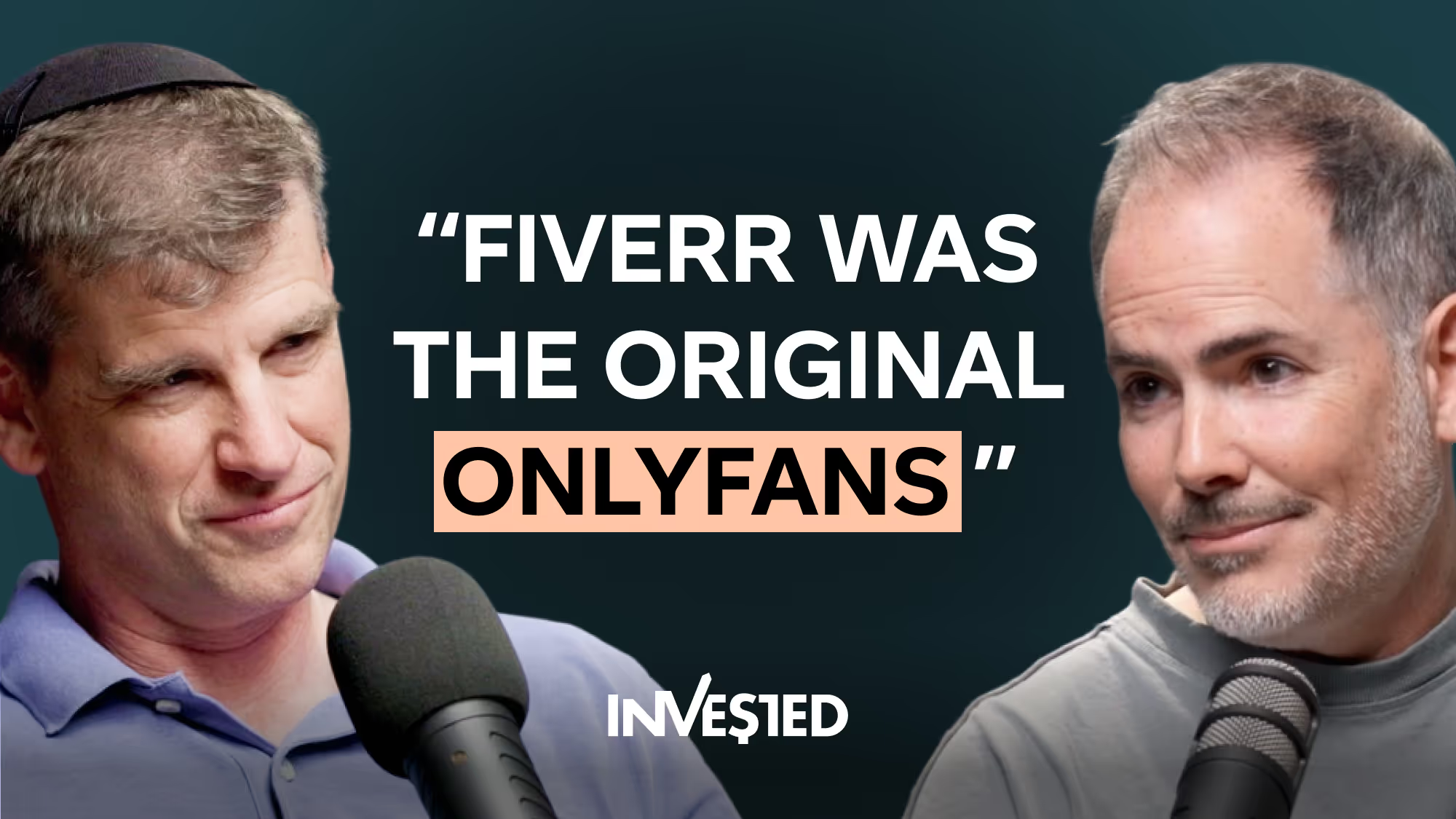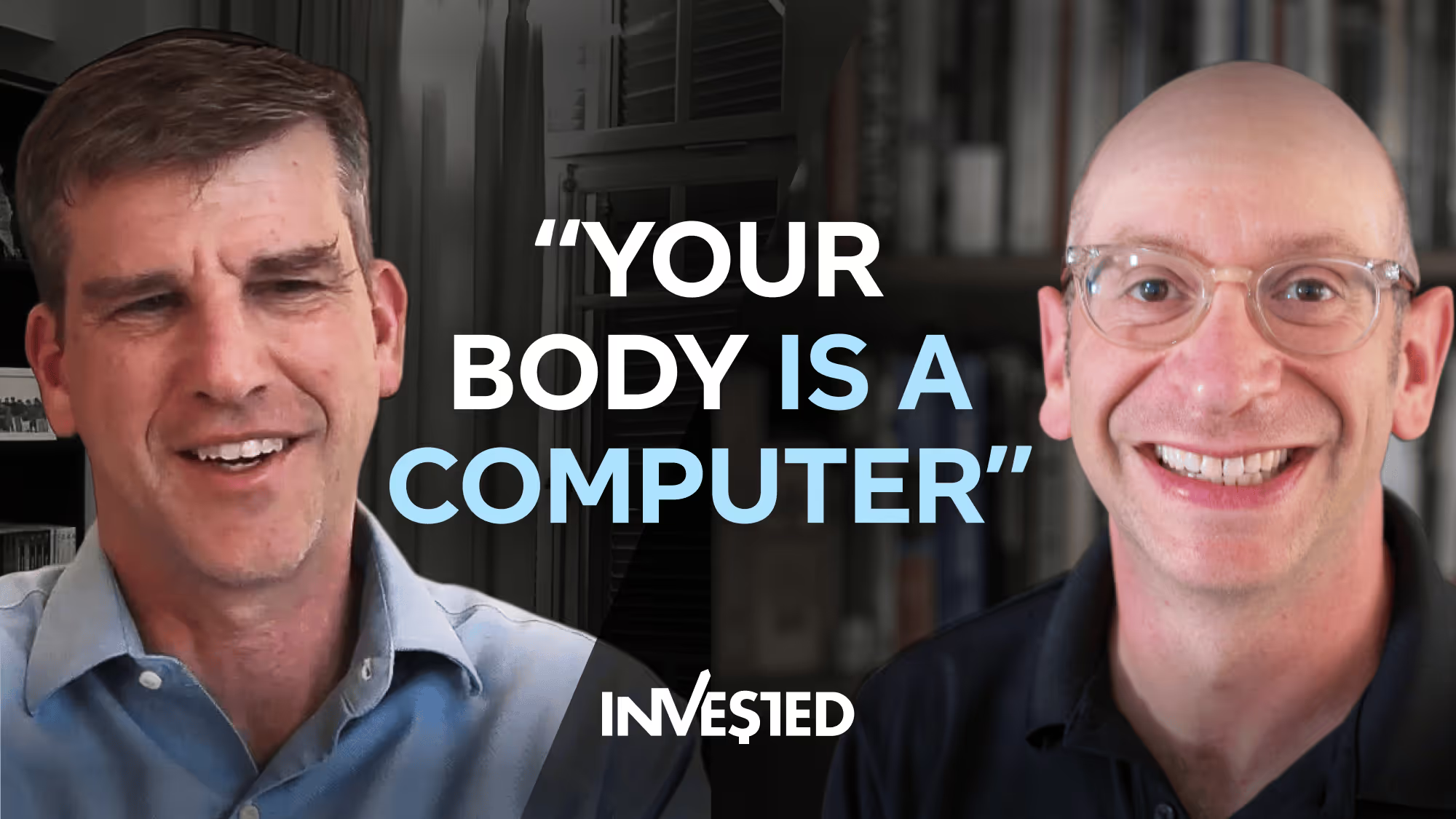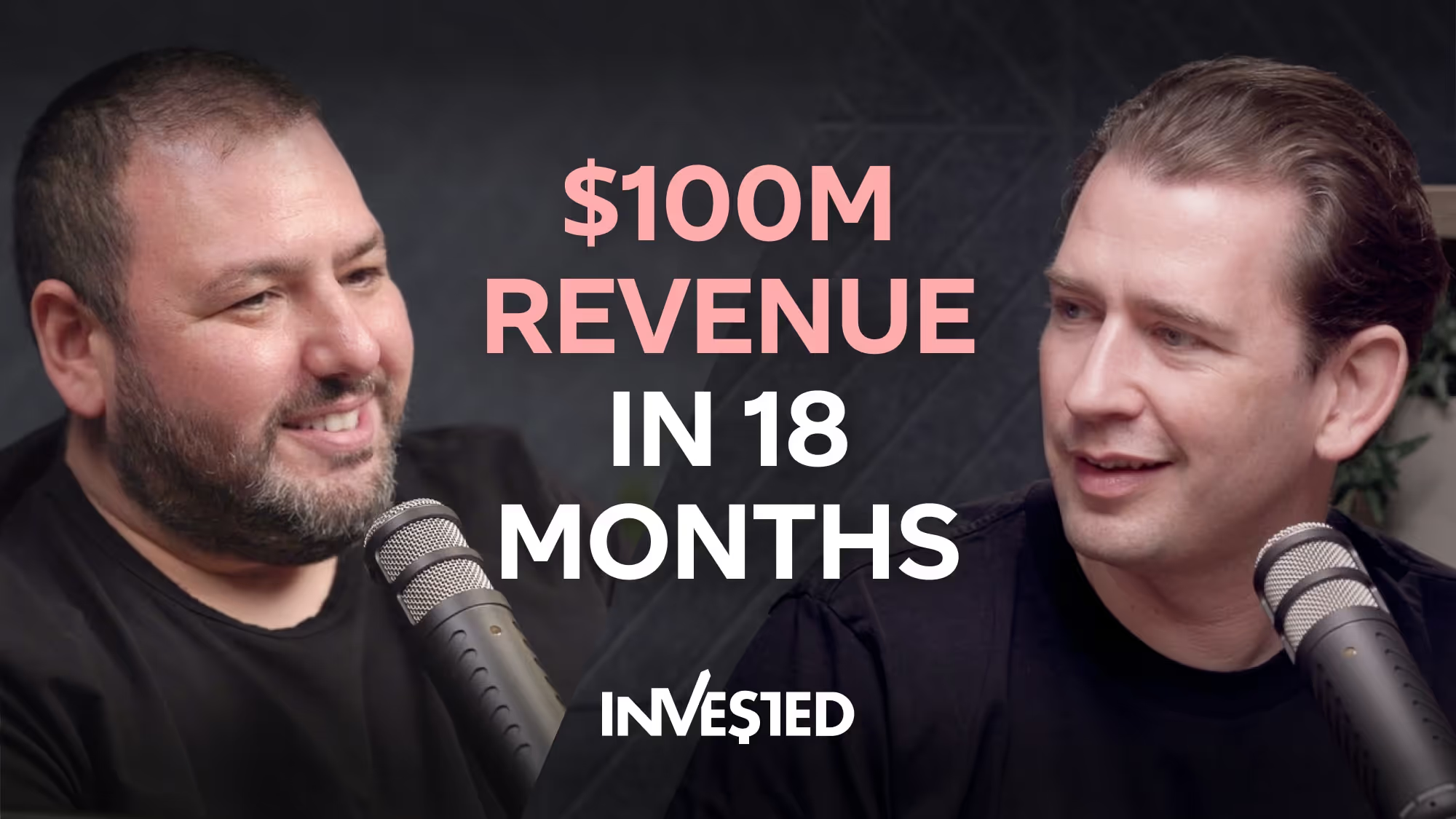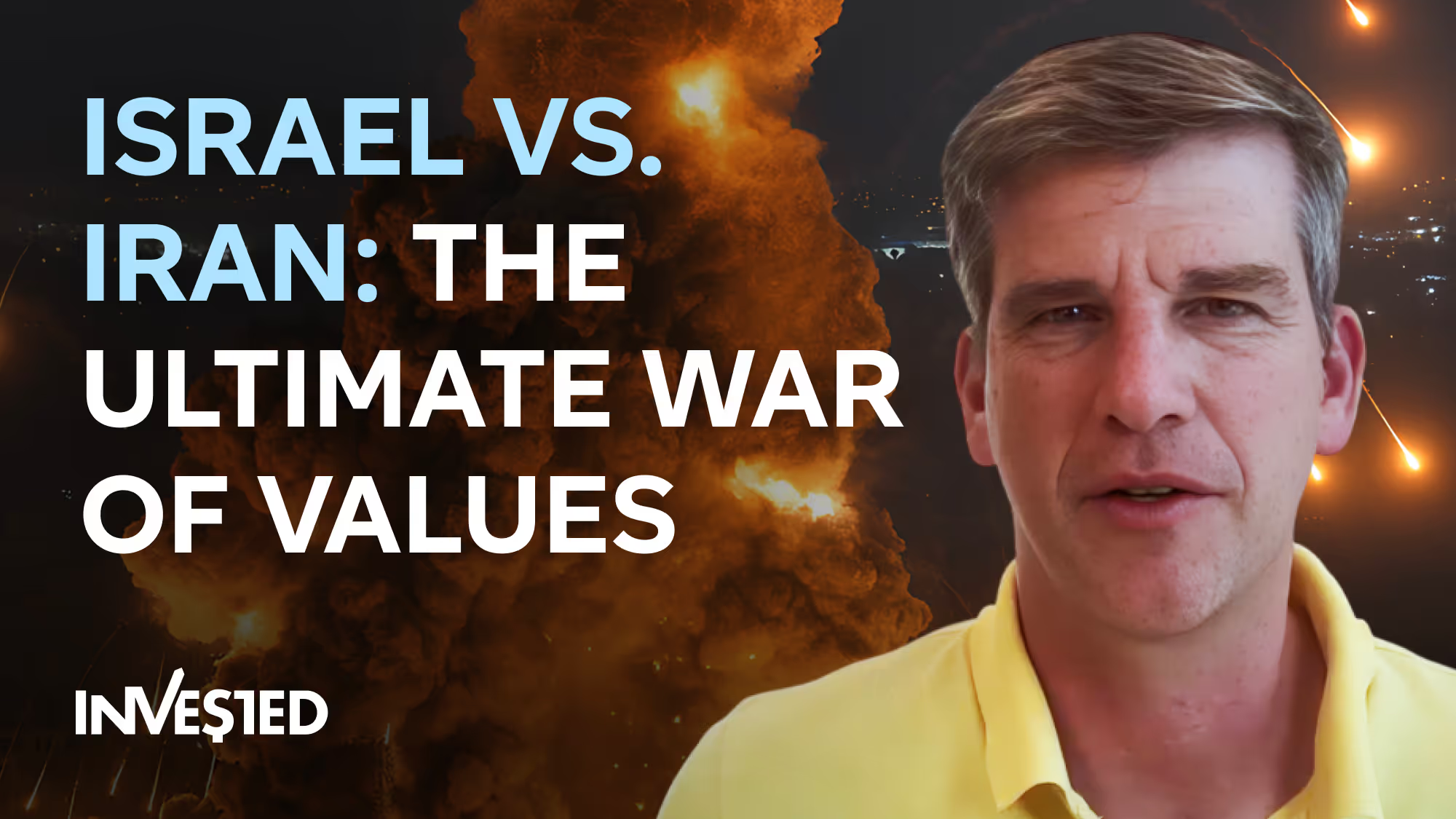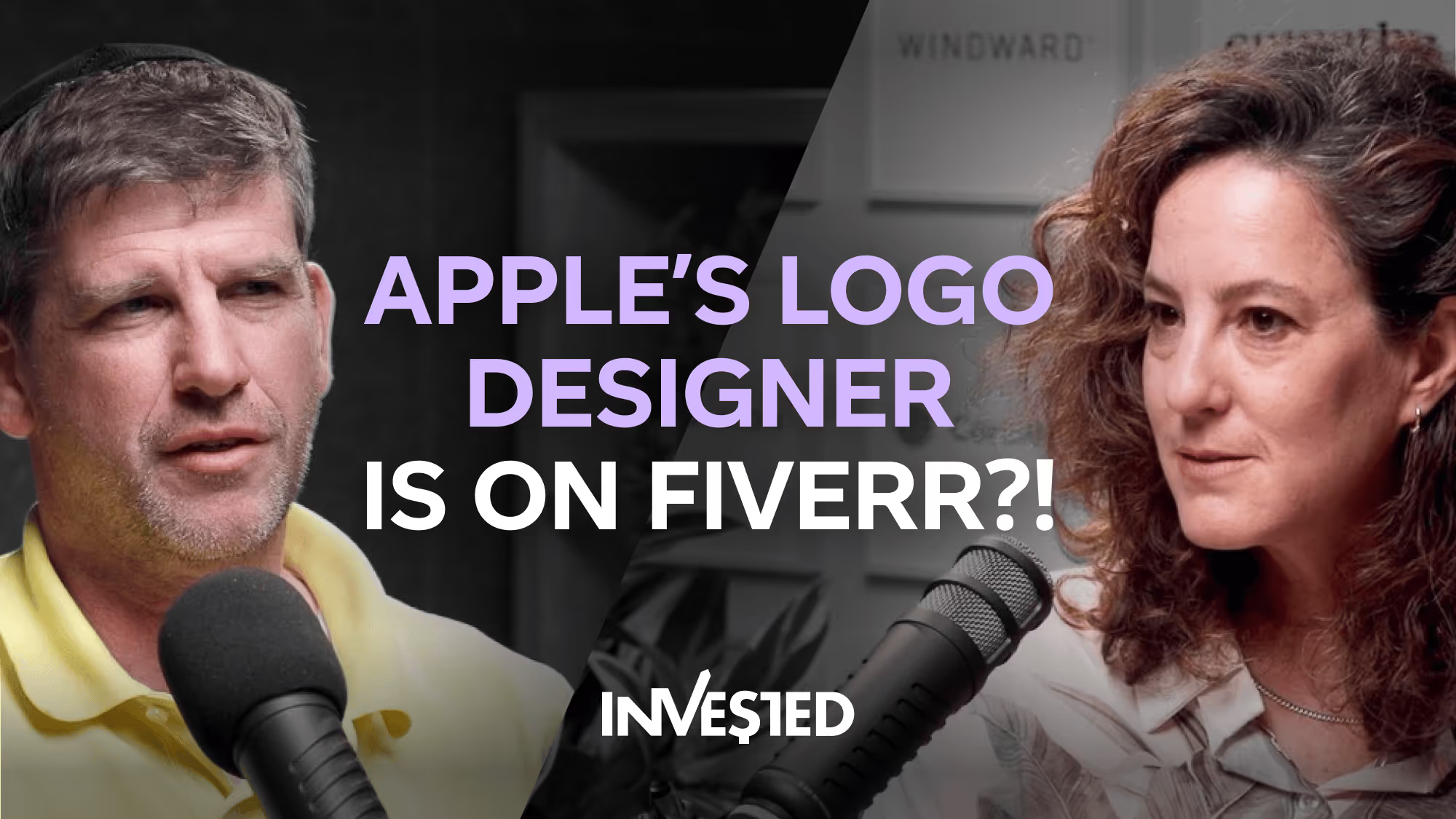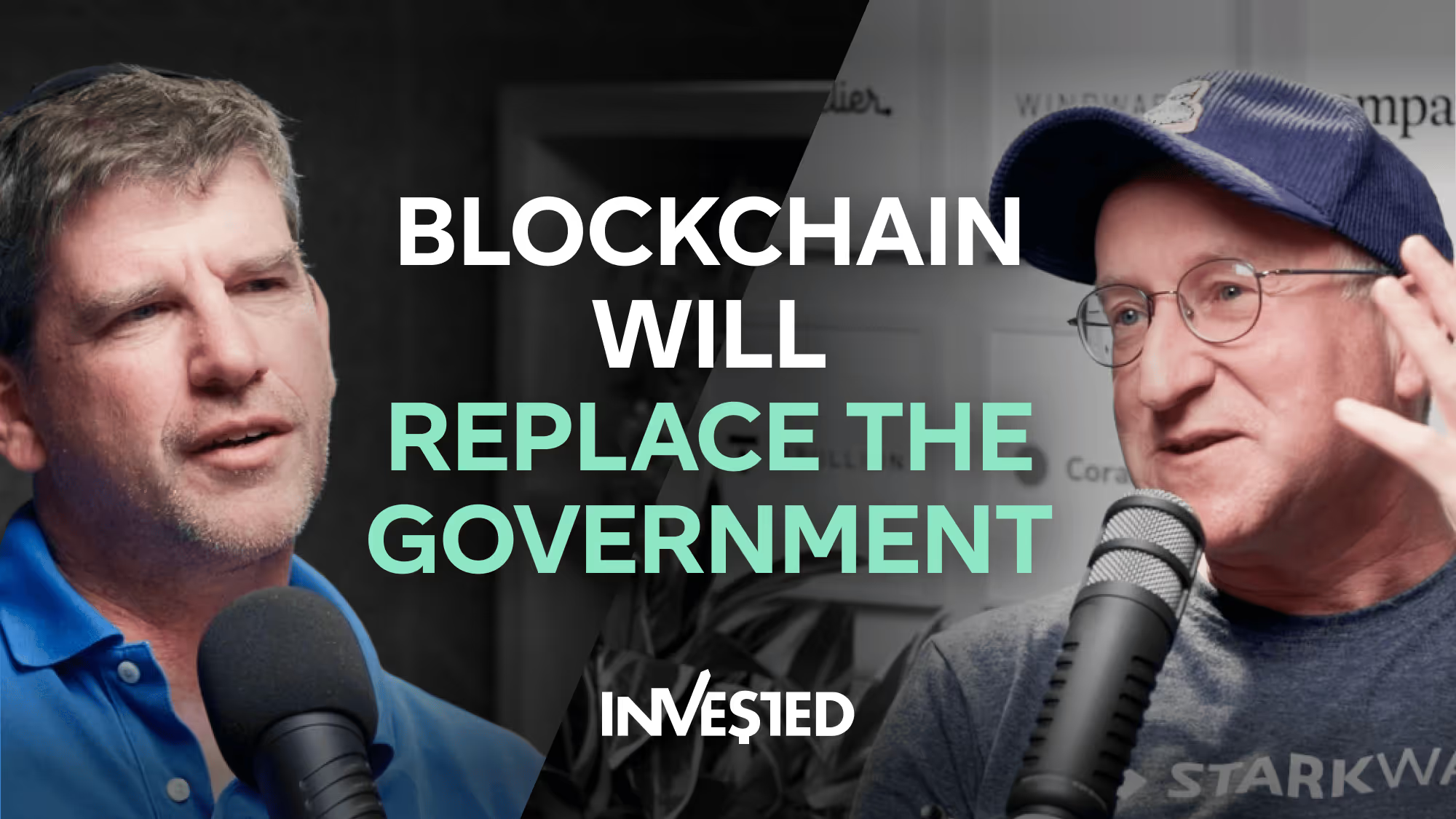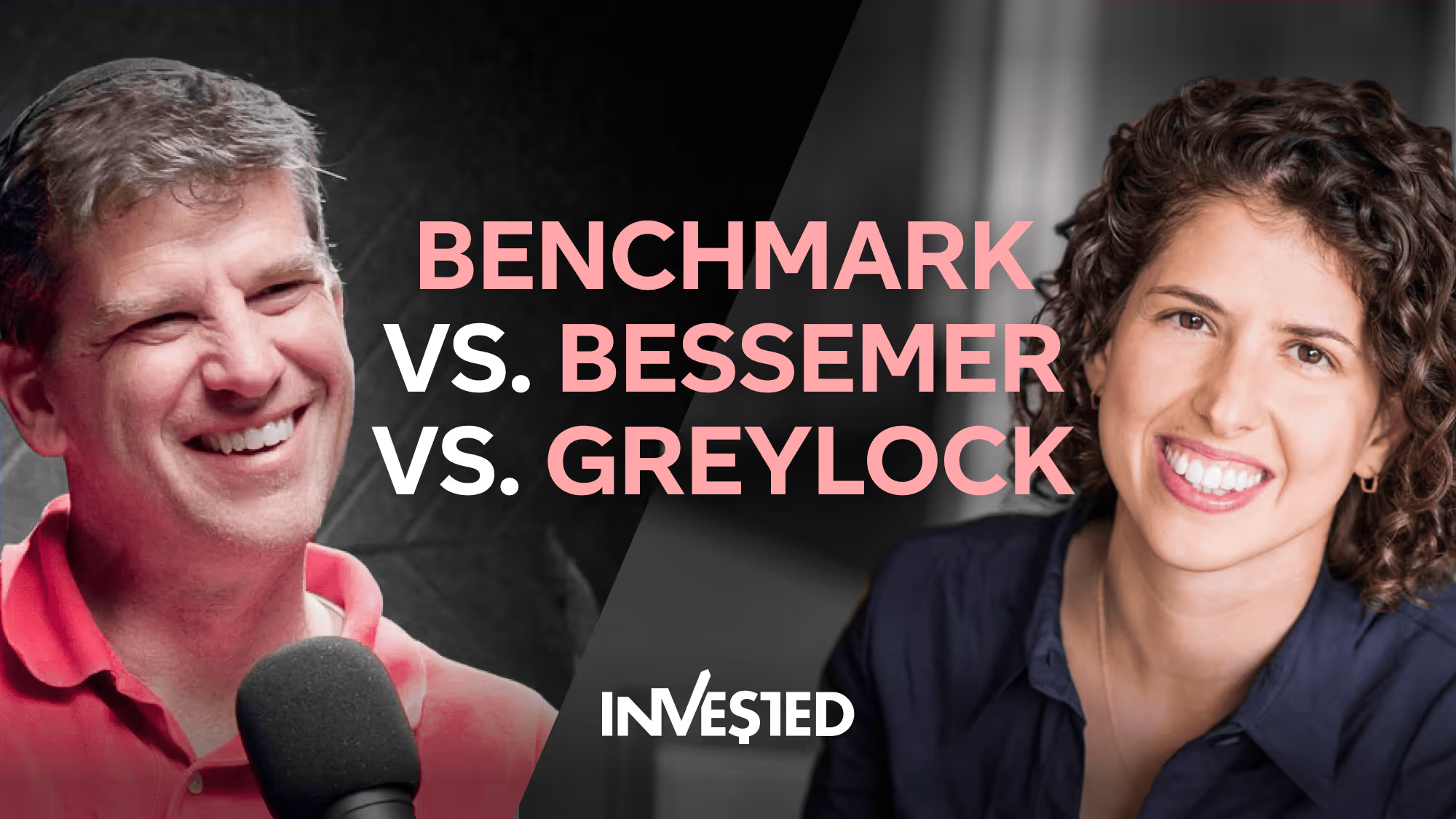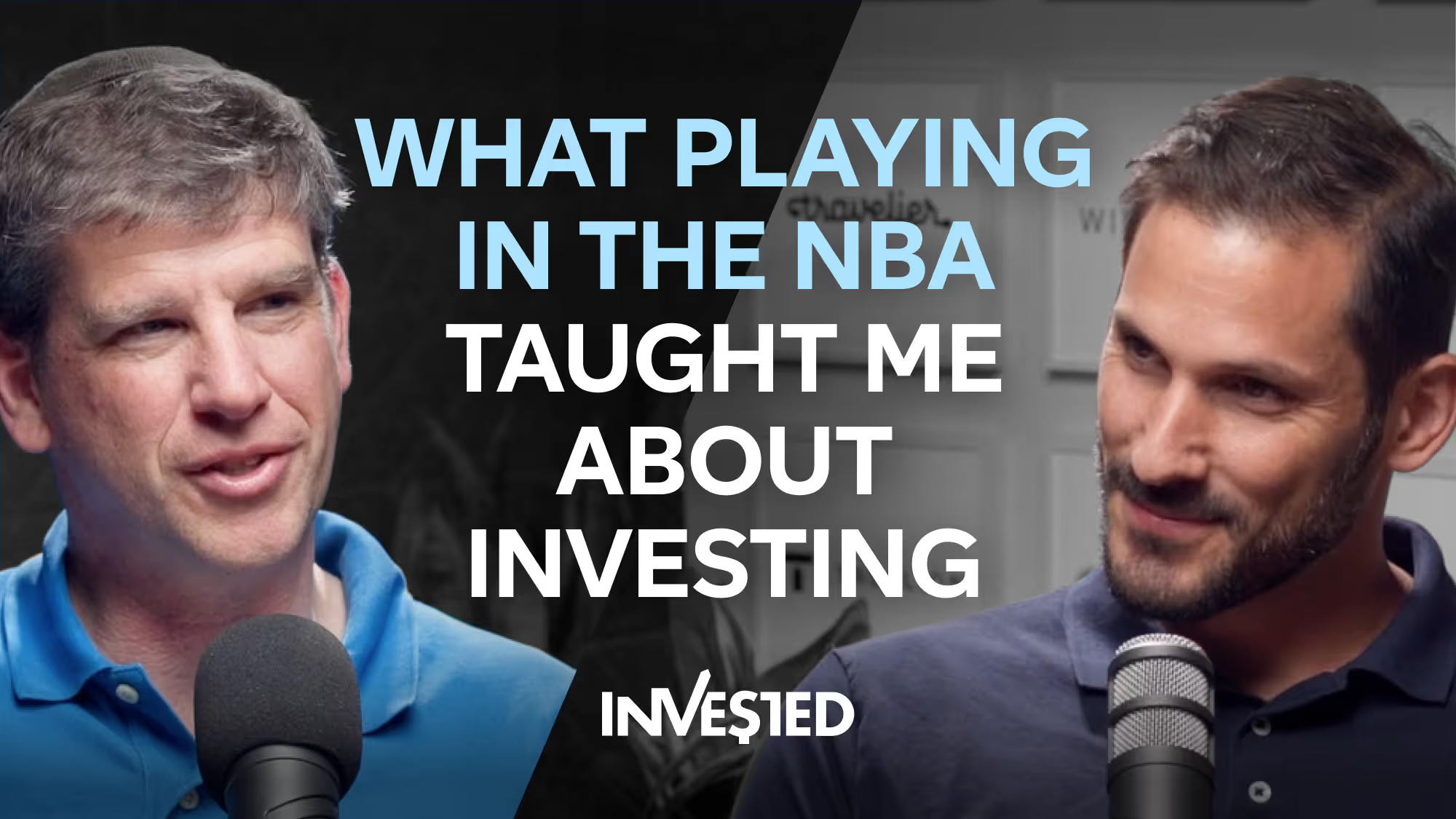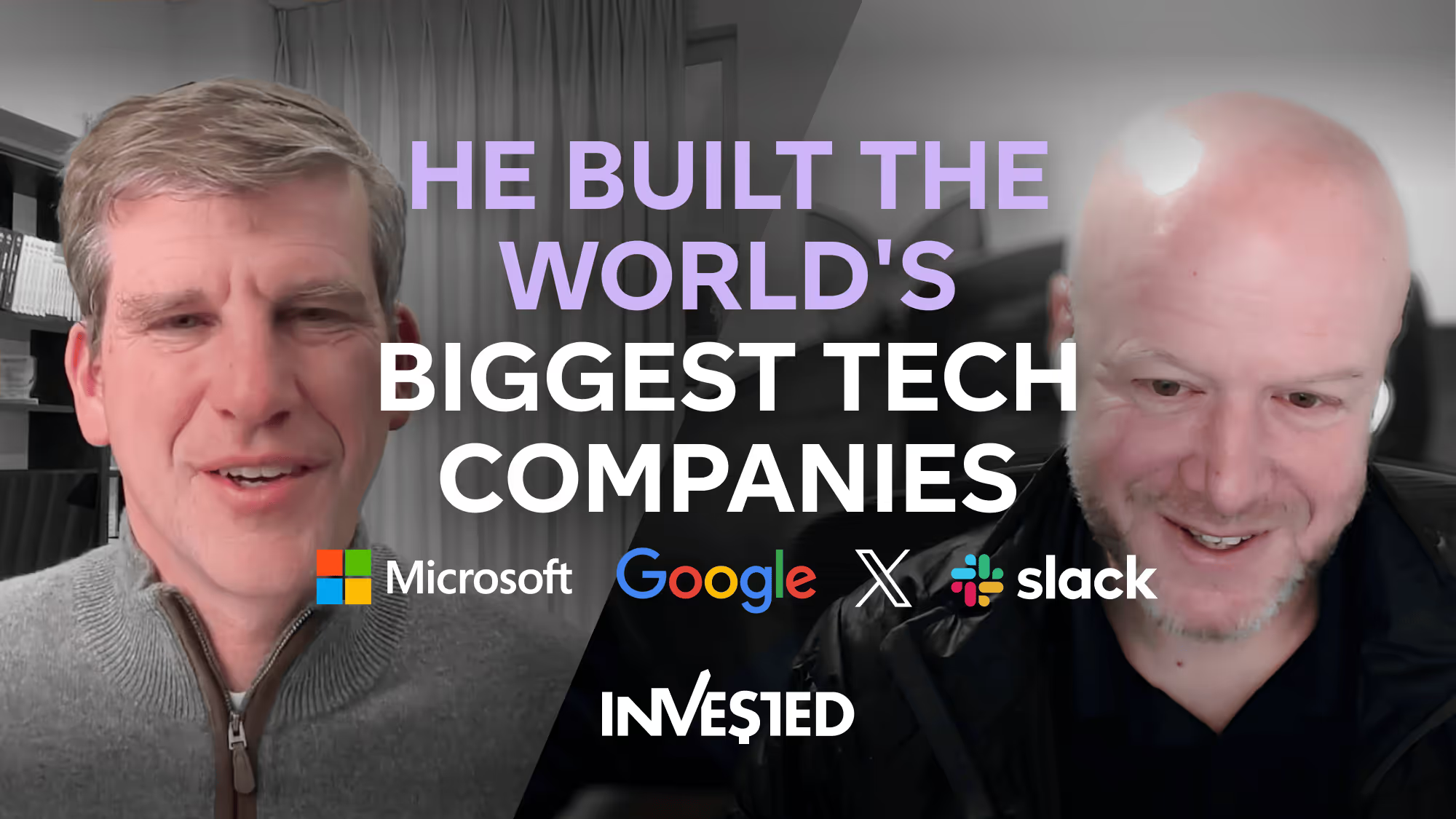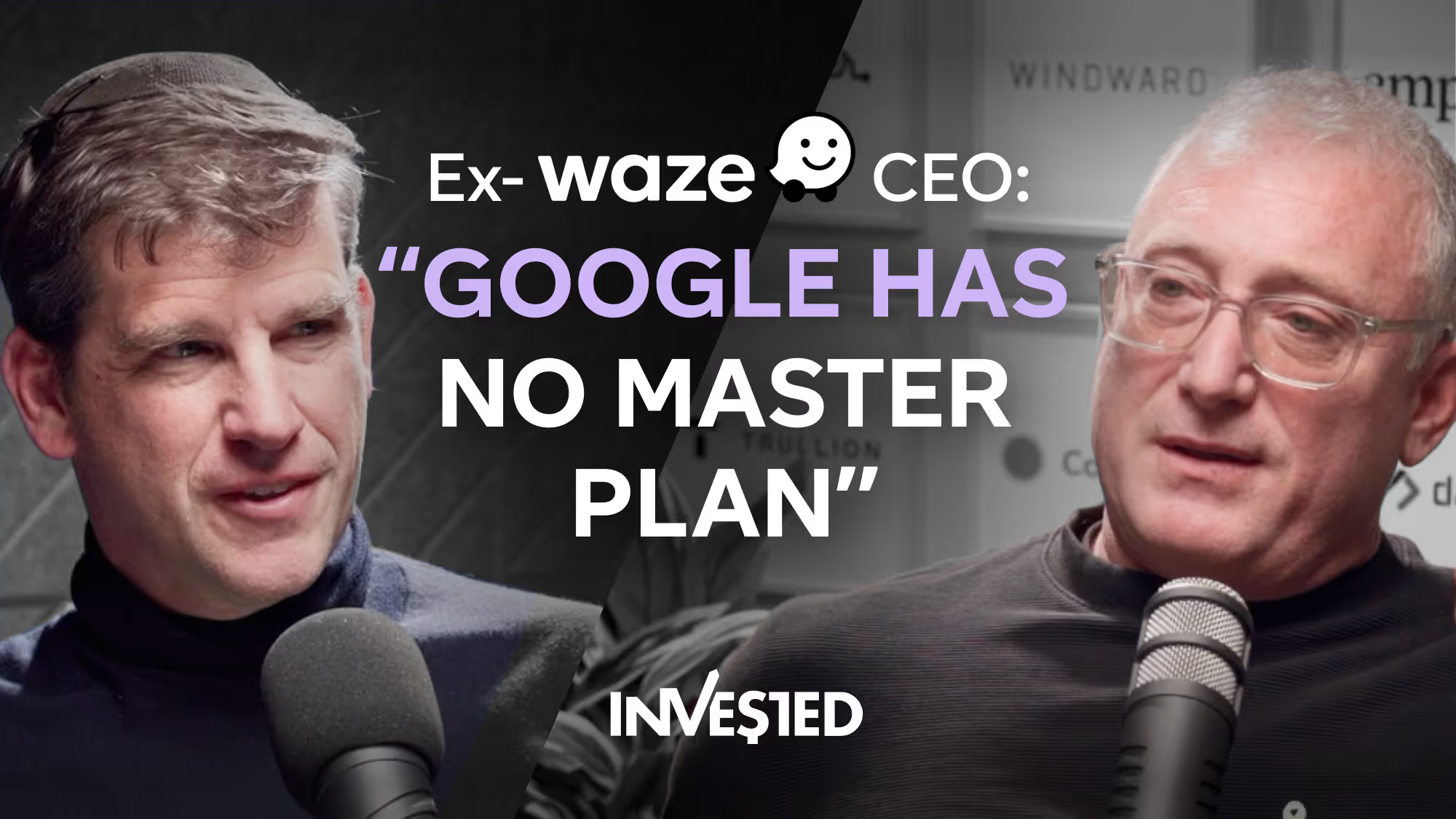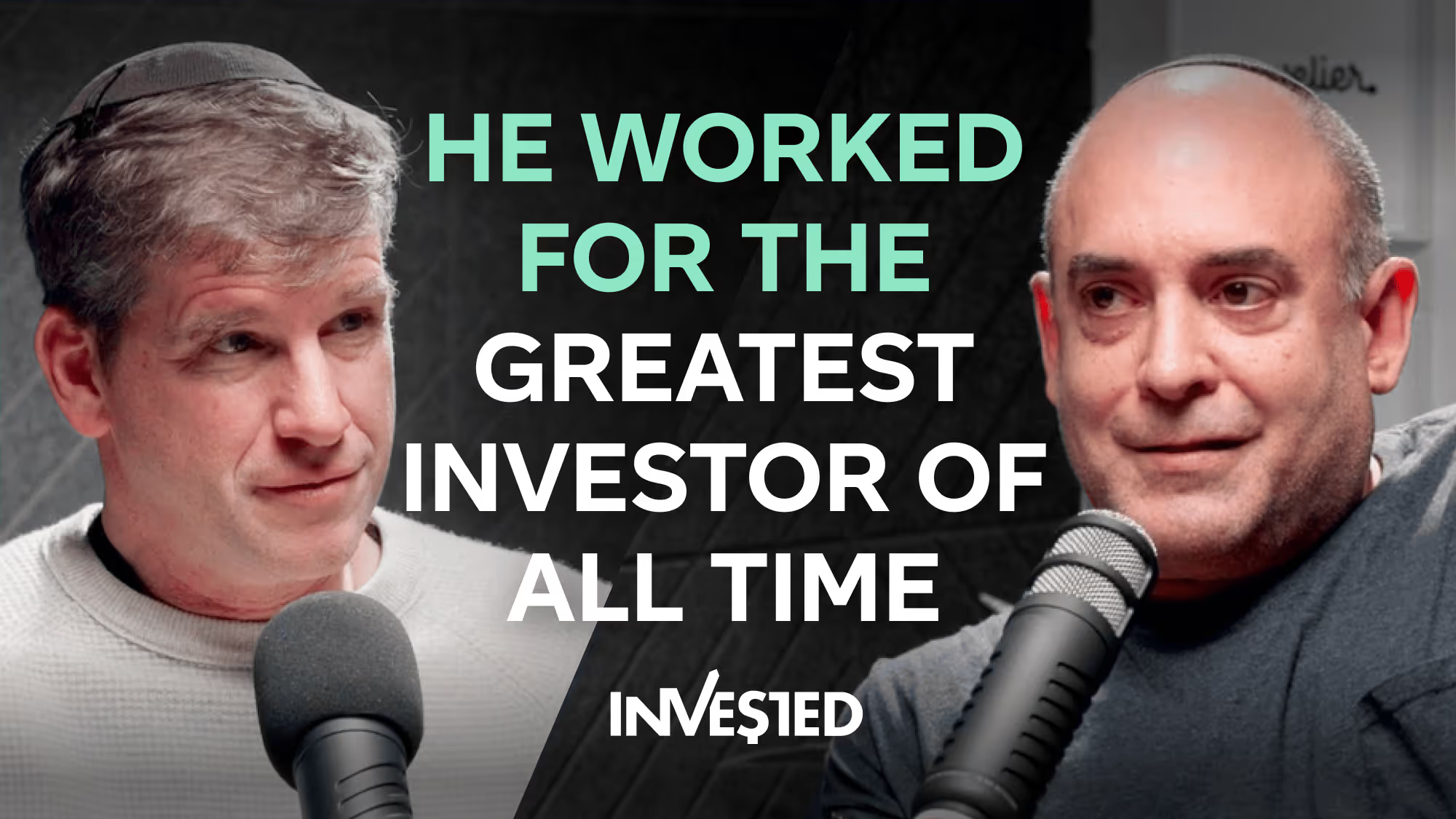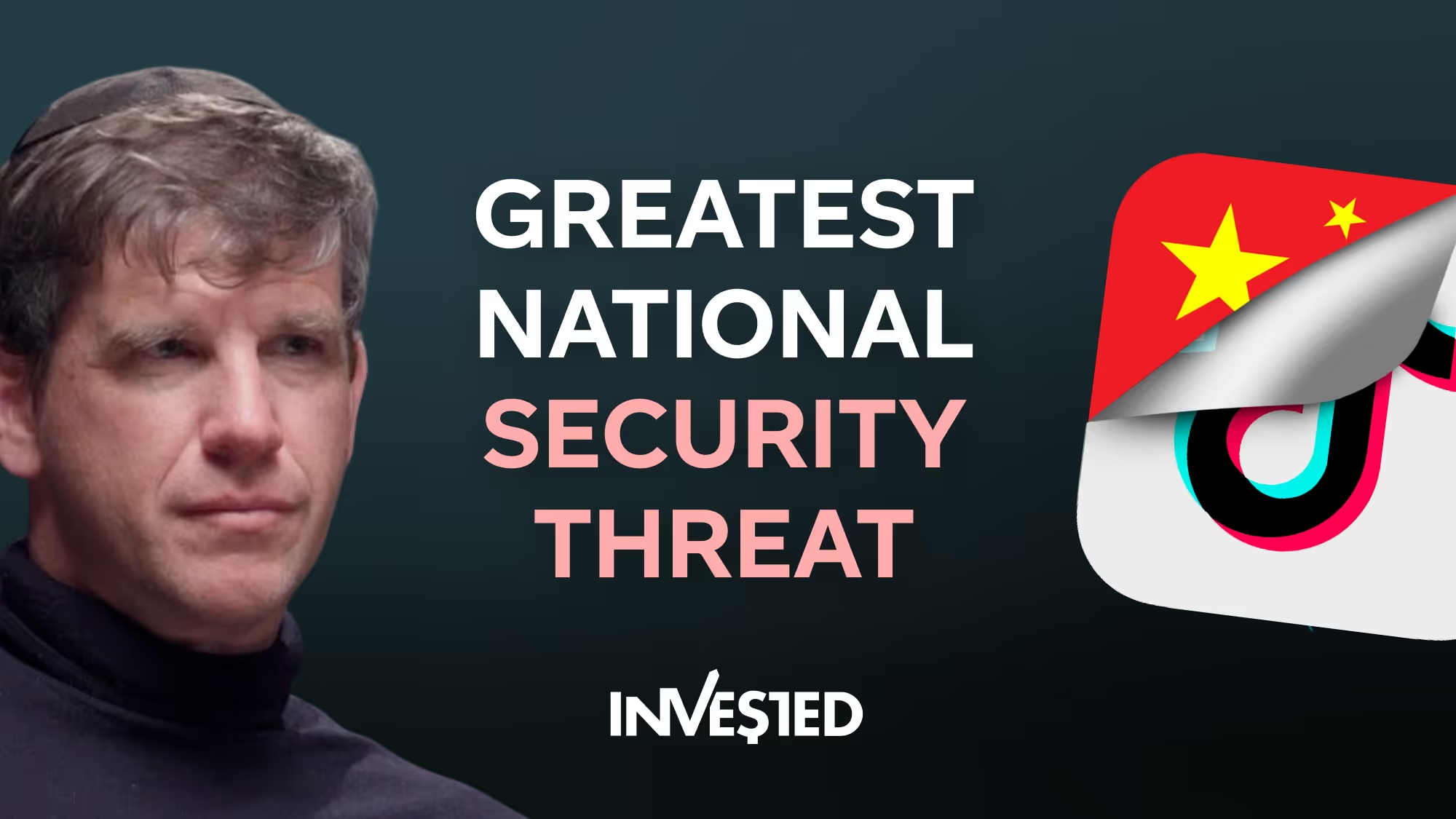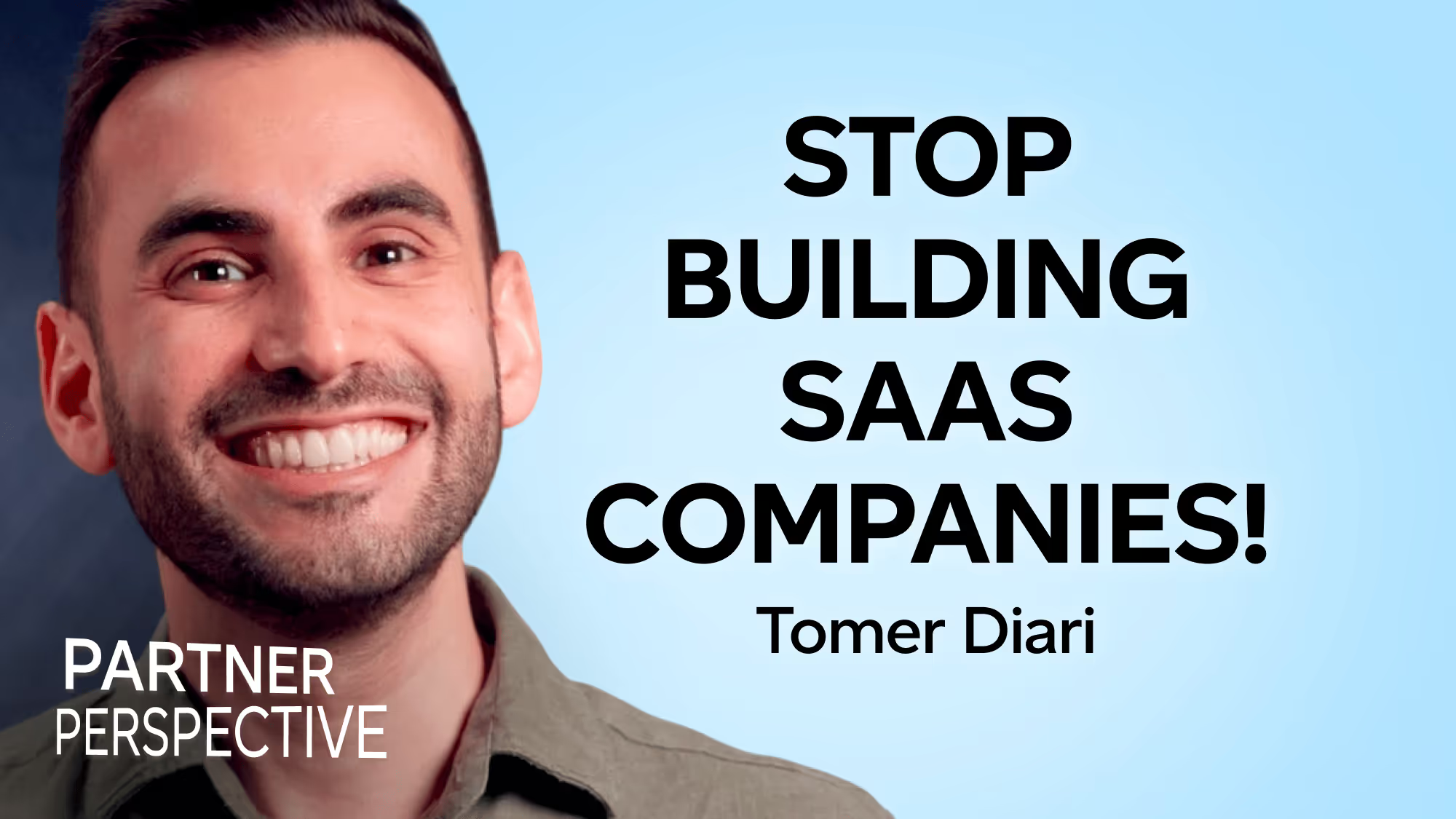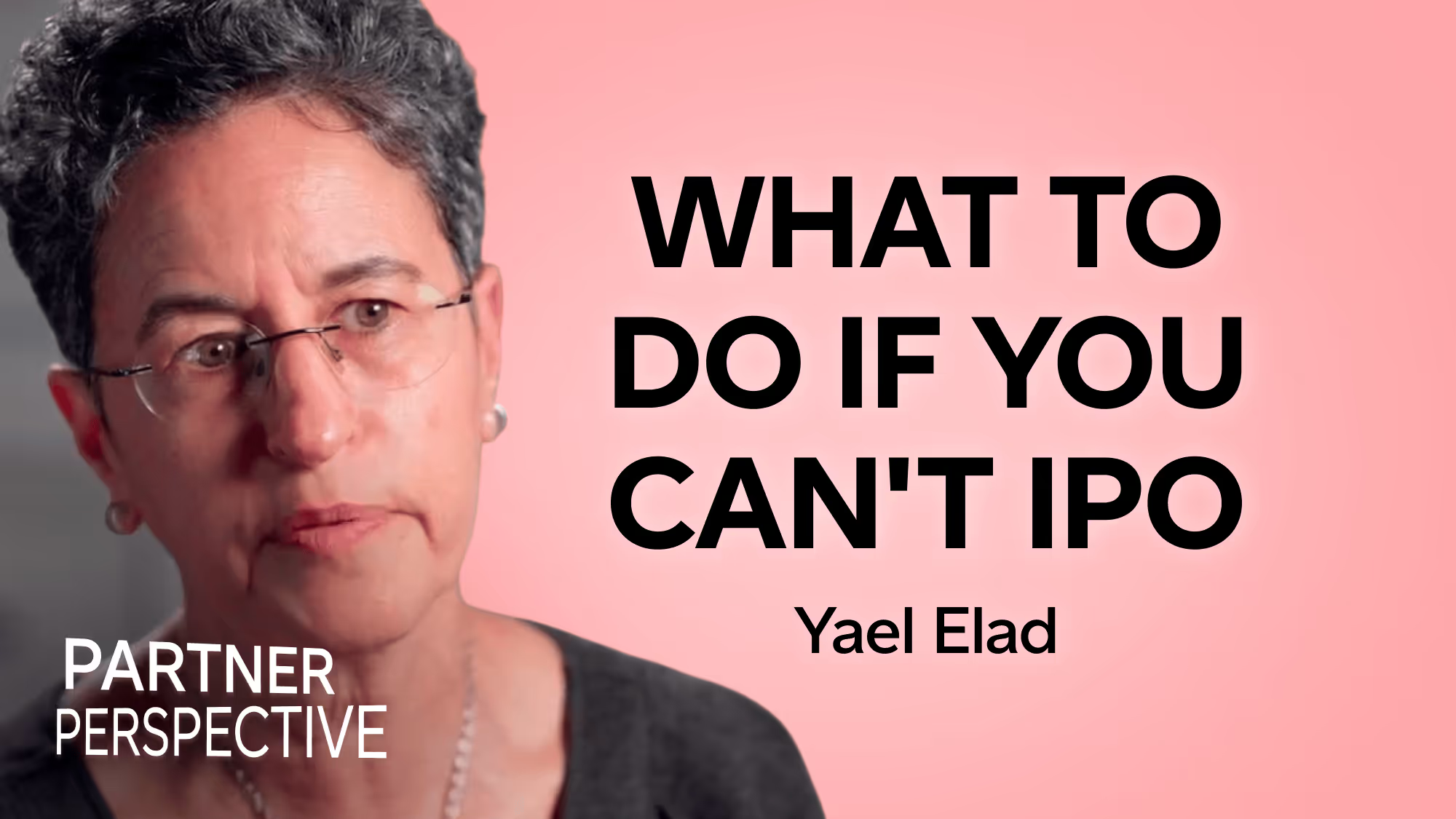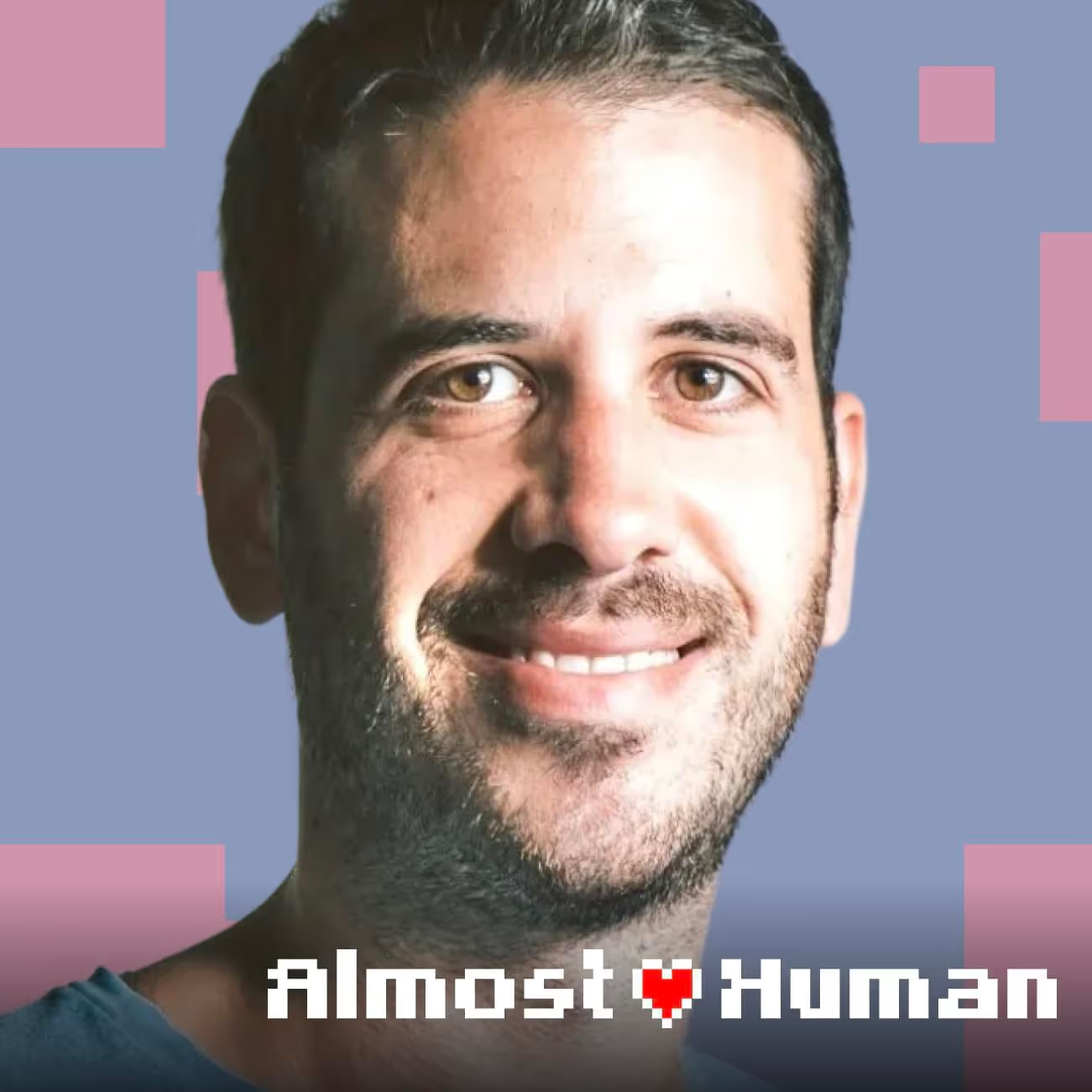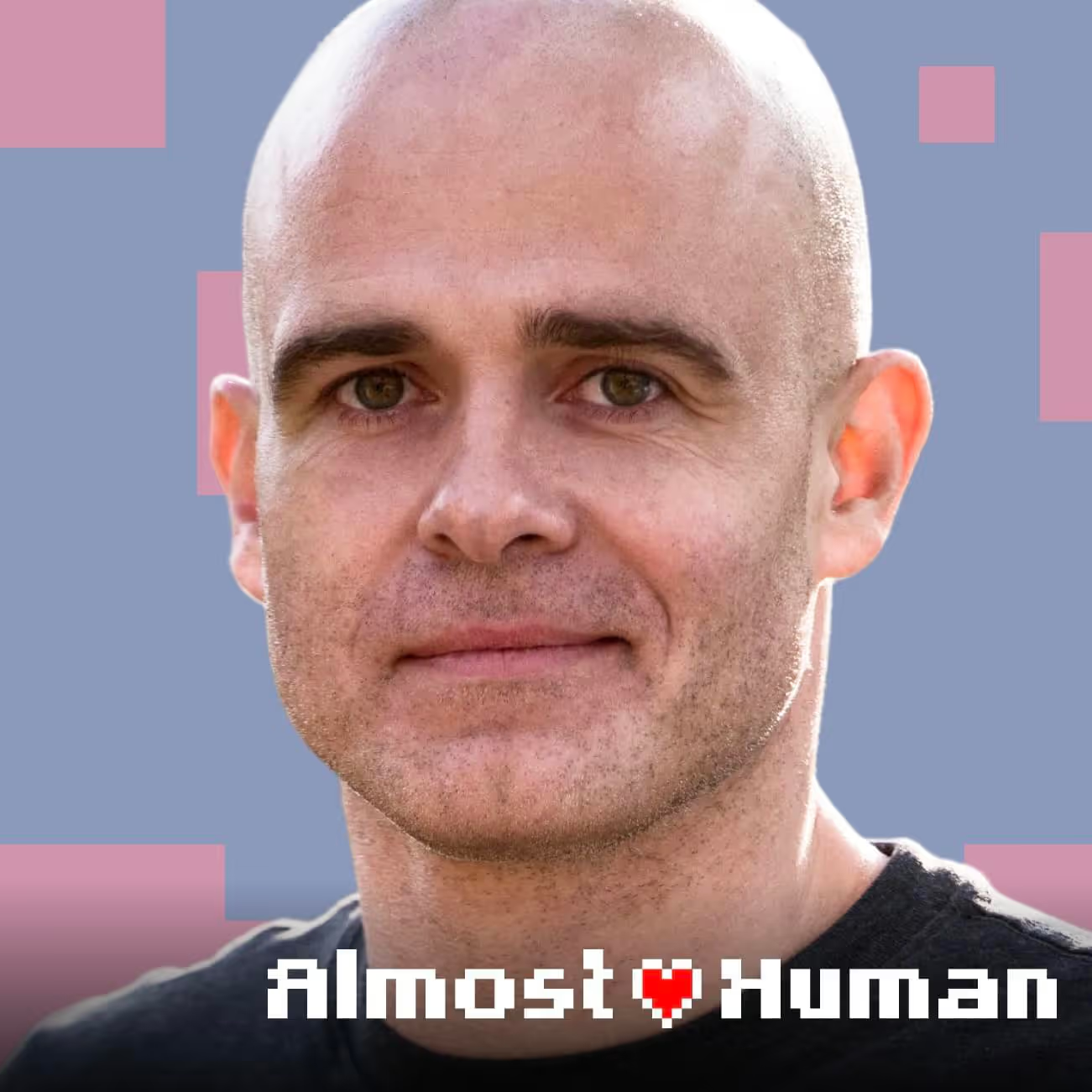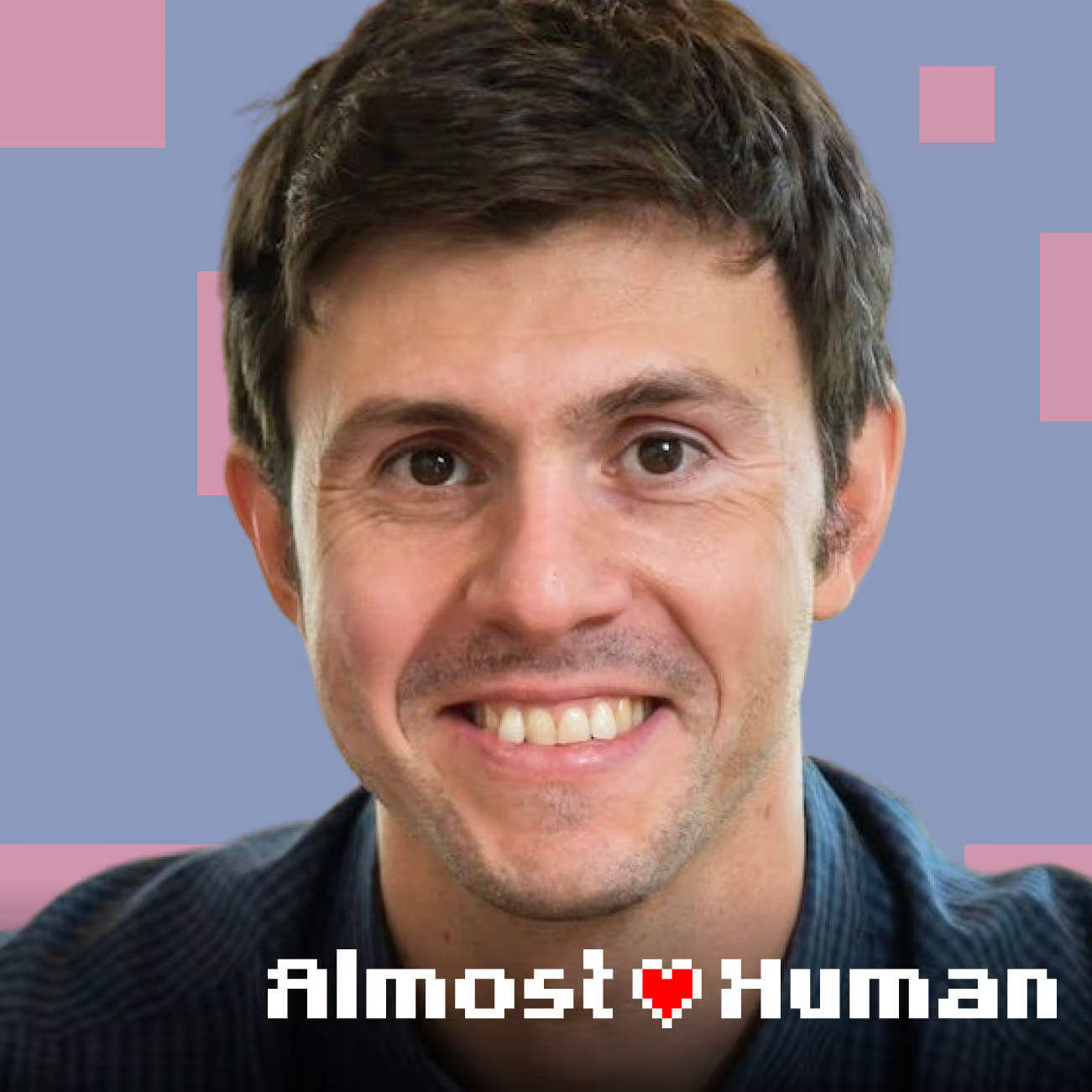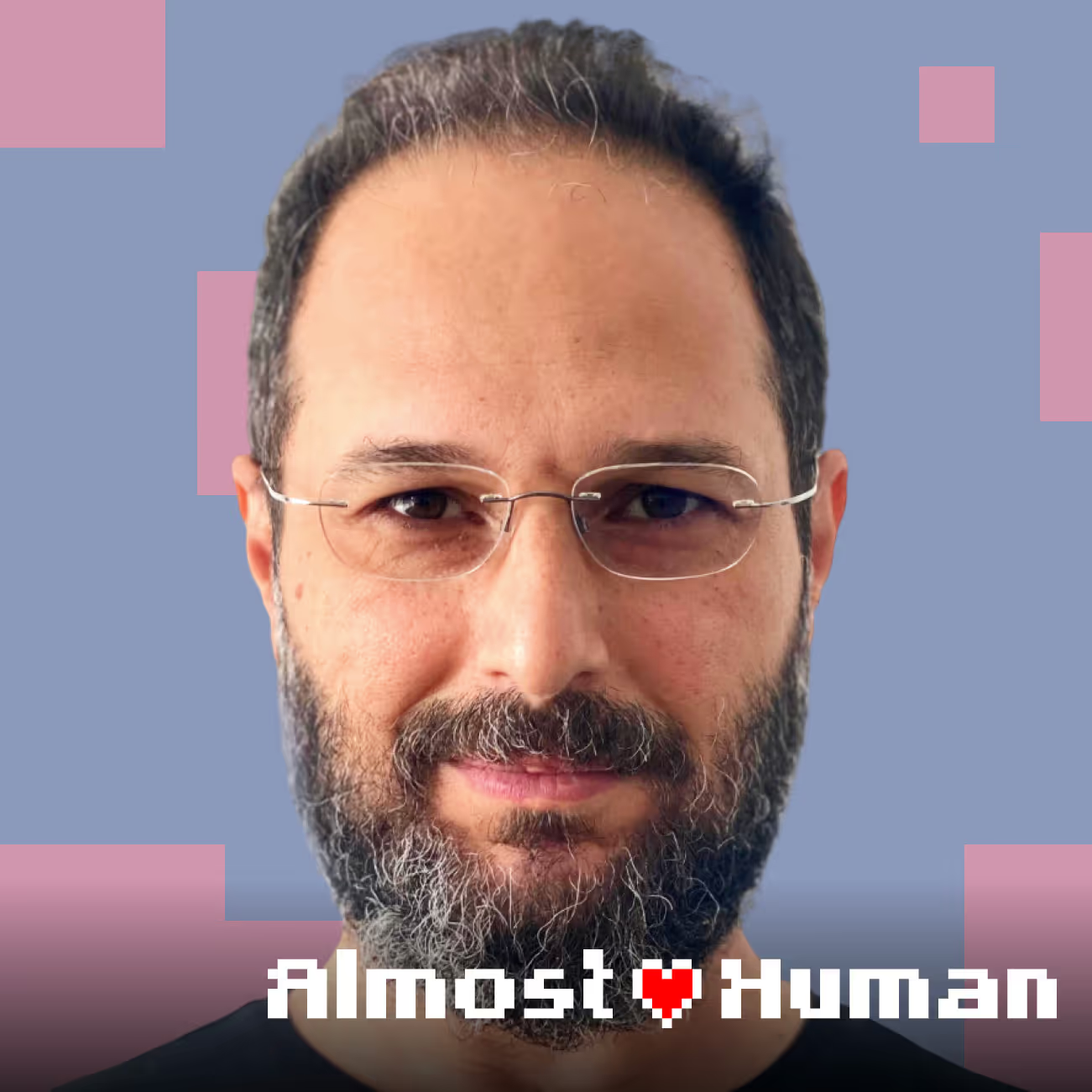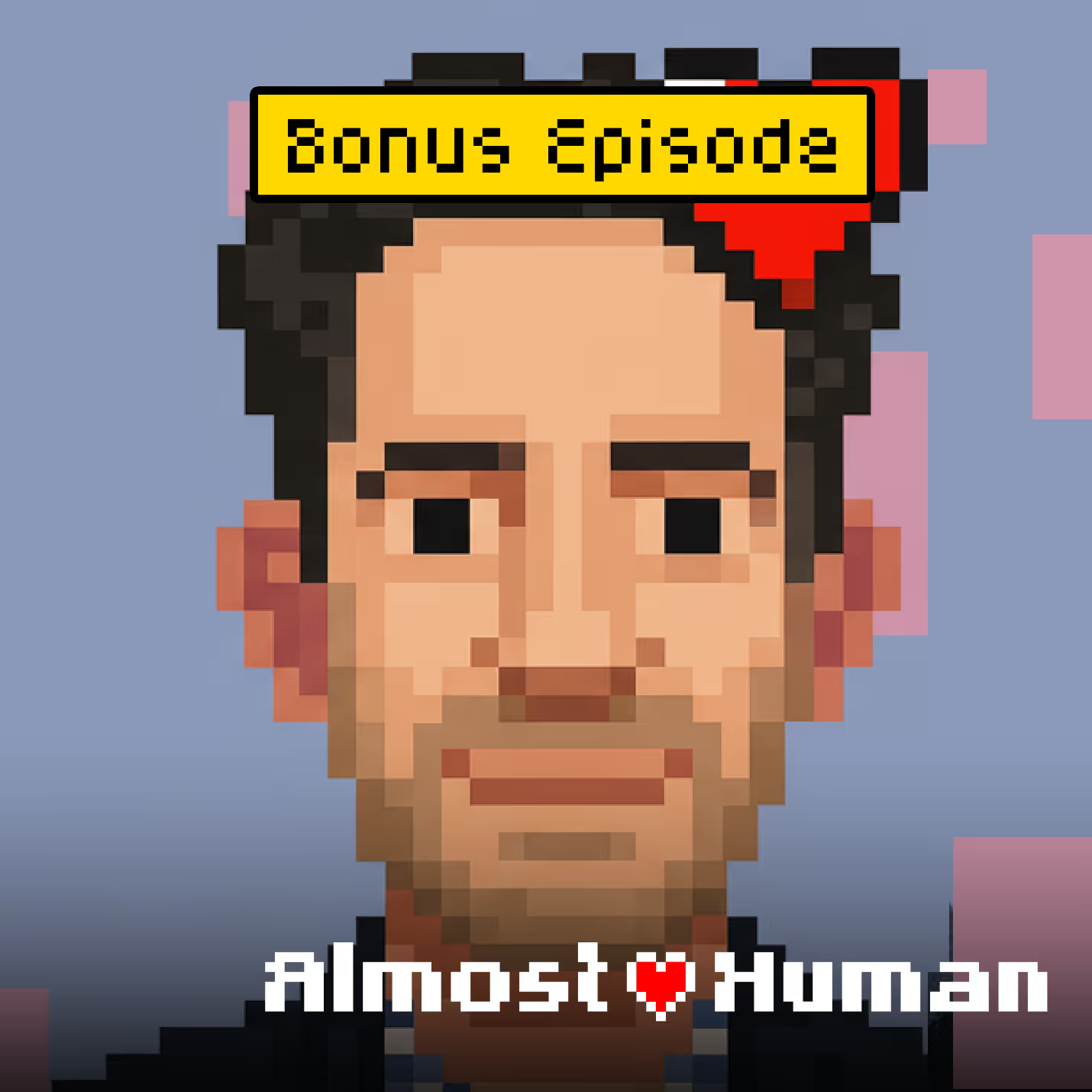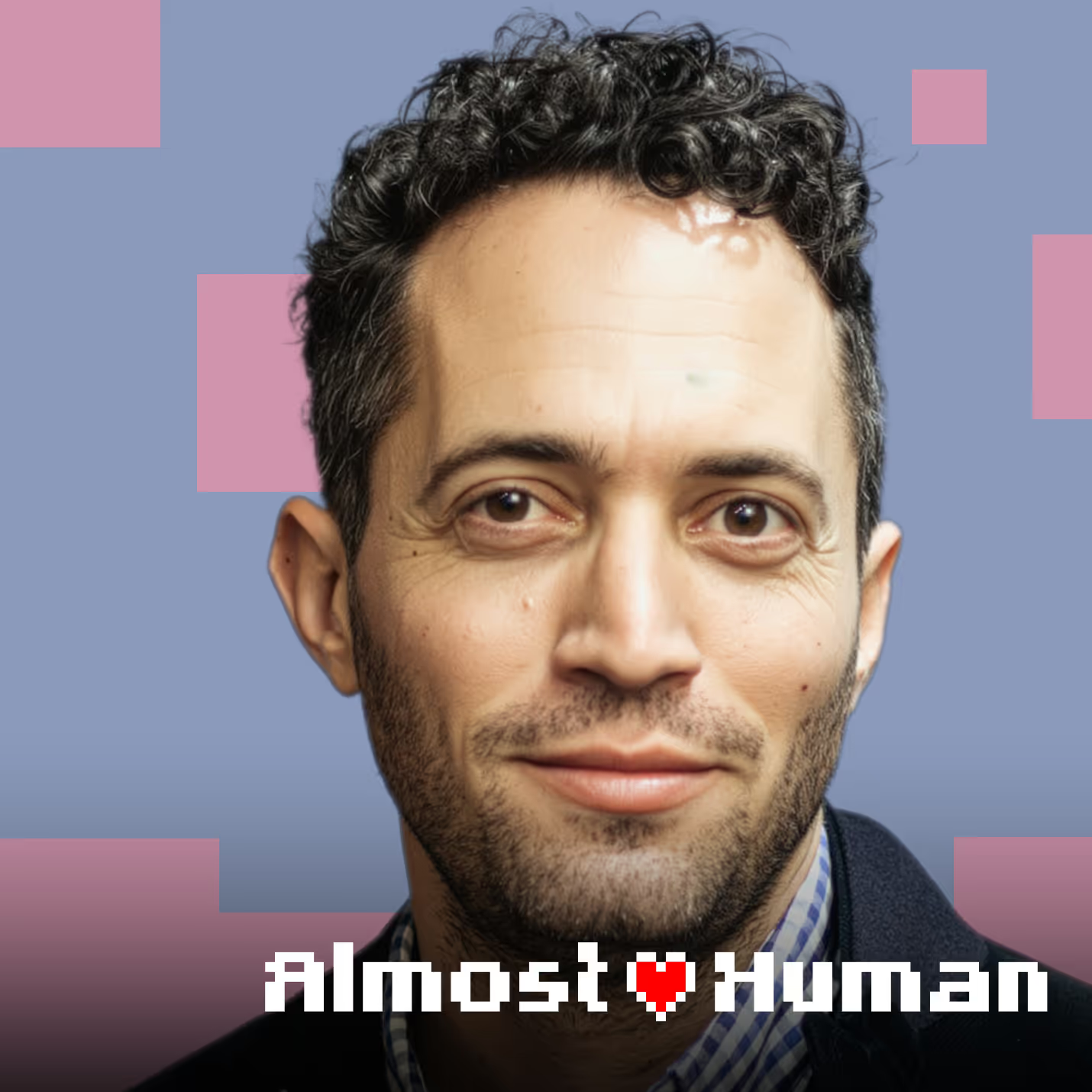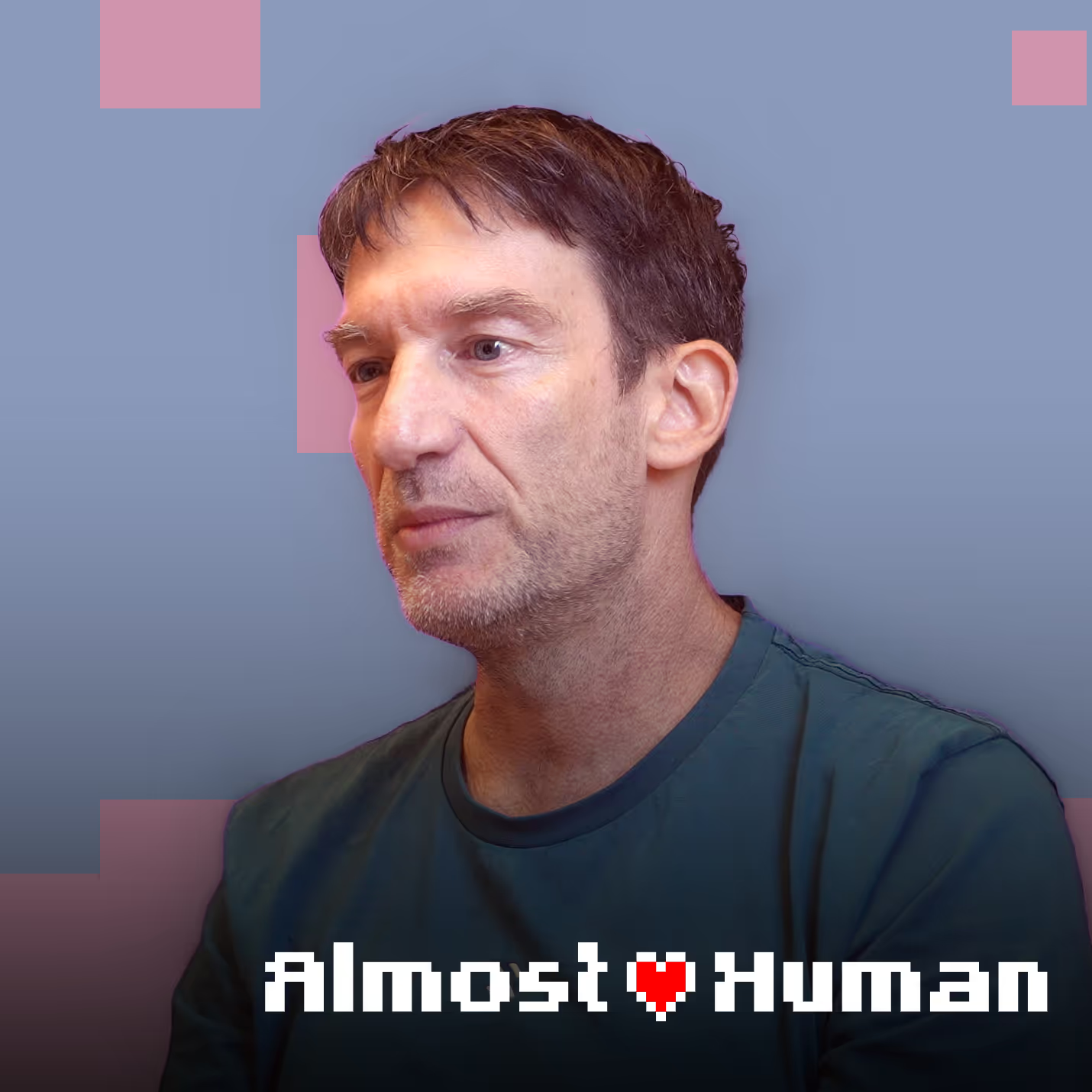Katherine Boyle
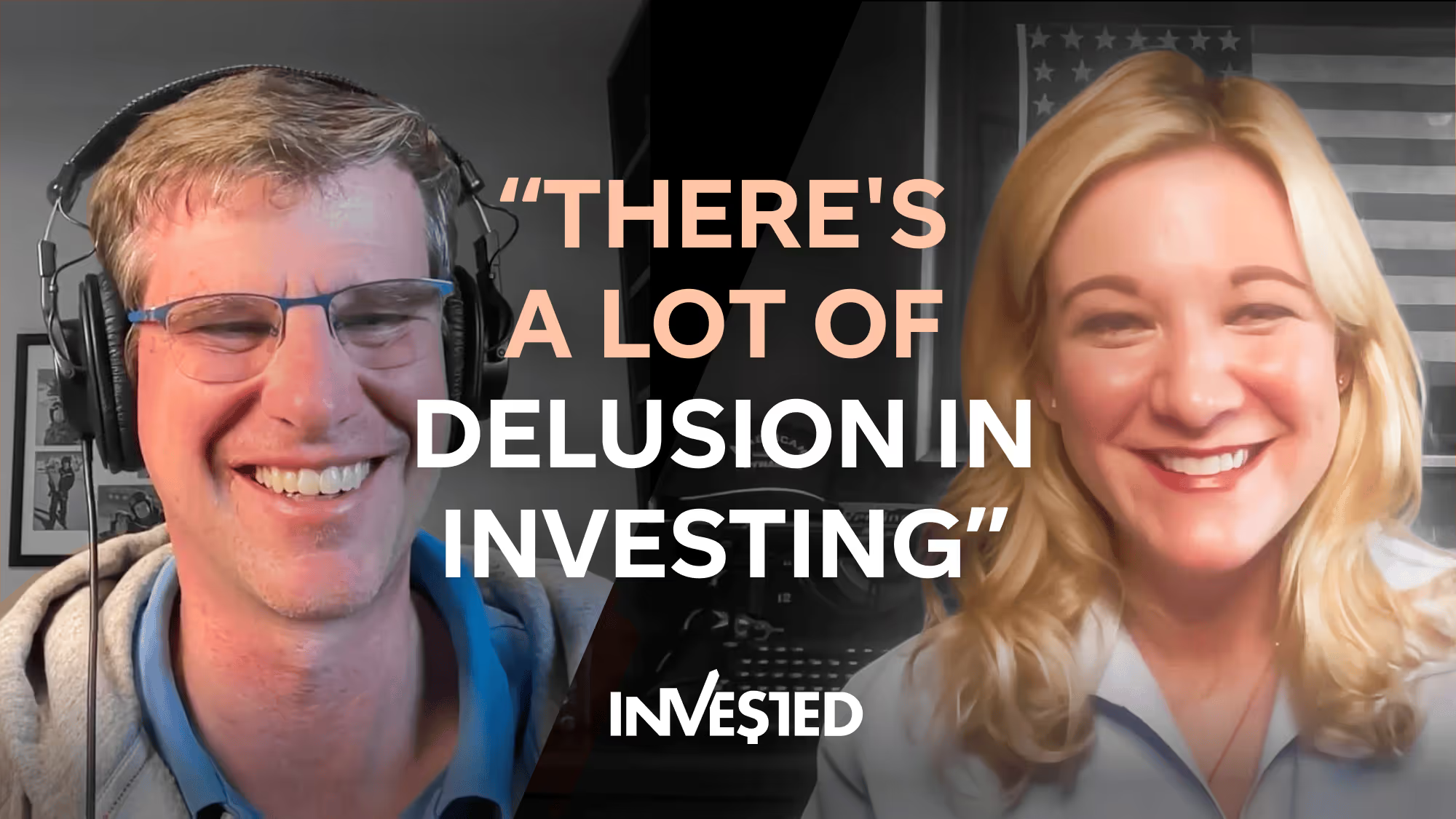


How can values create value? On this podcast, Michael Eisenberg talks with business leaders and venture capitalists to explore the values and purpose behind their businesses, the impact technology can have on humanity, and the humanity behind digitization.
Katherine Boyle



How can values create value? On this podcast, Michael Eisenberg talks with business leaders and venture capitalists to explore the values and purpose behind their businesses, the impact technology can have on humanity, and the humanity behind digitization.
Katherine Boyle
Katherine Boyle

Katherine Boyle
Katherine Boyle
- [00:00:00] Intro
- [00:04:20] Reaction to Zuckerberg’s Announcement
- [00:08:40] Global Shift in Free Speech
- [00:11:46] Why Move to Florida?
- [00:14:05] How are Florida’s Values Different Than Silicon Valley?
- [00:19:33] Importance of Family Over “Transhumanism”
- [00:25:05] Future of the Relationship Between Man and Machine
- [00:31:53] Importance of Family in Facing Criticism
- [00:35:50] The Importance of Children for Building Societies
- [00:40:58] Why it’s Good to be Bored in Church
- [00:46:17] TikTok Needs to be Banned
- [00:49:12] Do Your Values Need to Align With Your Work?
- [00:53:05] Katherine’s Core Value
- [00:54:39] Belief vs. Data in Investing
- [01:01:12] Investing in Hallow, the Catholic Prayer App
- [01:04:45] Leaving Silicon Valley is Better for Investing
- [01:10:15] Relationship Between Defense and Tech
- [01:13:52] Google Employees Against Working With Defense
- [01:15:20] The Future of Media
- [01:23:50] Most Surprising Tech Innovation of 2024
- [01:27:40] Closing Questions
On this episode of Invested, Michael hosts Katherine Boyle, a General Partner at Andreessen Horowitz. She is the co-founder of the firm’s American Dynamism practice, which invests in companies supporting the national interest across aerospace, defense, manufacturing, energy, logistics, and critical infrastructure. She sits on the boards of Apex Space and Hadrian Automation and is a board observer for Saronic Technologies and Castelion.
Katherine was previously a partner at General Catalyst, where she co-led the firm’s seed practice and invested in the inception rounds of defense technology companies including Anduril Industries and Vannevar Labs. Prior to General Catalyst, she was a general assignment reporter at The Washington Post. Katherine holds a BA in Government from Georgetown University, an MBA from Stanford and a Masters of Public Advocacy from the National University of Ireland, Galway.
Katherine believes that free speech is essential to promoting American Dynamism. She is a proud champion of new media companies and academic centers that promote free speech and free thought. She serves on the boards of The Free Press and the Mercatus Center at George Mason University.
Please rate this episode 5 stars wherever you stream your podcasts!
Katherine Boyle (00:00):
My career took off when I became a mother. I wasn’t living as fully as I could when I was just living for myself.
I think your family history matters. Your religion matters, your culture matters, the story that you come from matters.
The purchase of Twitter is one of the most important political, but also one of the most important technology acts probably in the history, not only of the 21st century but in the history of the internet.
The minute where you strip yourself of all meaning, you just get filled with these platitudes. I do think that is why you saw sort of this progressive religion take off and wokeism, where people had no meaning anymore so they just adopted whatever the current thing was.
Land a man on the moon or take a man to Mars–you create a family, you’ve done something that has a legacy that is the ultimate thing to build.
If what you are looking for as an investor is truth and where the world is headed, I feel like I’ve had a better barometer in Florida than I did in Silicon Valley.
Our limited partners–like no one wants to think that this is how you’re making decisions about investments, right? It sounds, like, a little bit woo-woo, right?
Michael Eisenberg (00:54)
Welcome back to another episode of Invested. I’m here with Katherine Boyle. The truth is I have been waiting to do this for a very, very long time. I think you'll find out that despite our different genders and despite our different religions, we share a ton in common, and it's going to make this a super interesting conversation. Welcome Katherine.
Katherine Boyle (01:13)
It's so great to be here. Thanks so much for having me, Michael.
Michael Eisenberg (01:15)
Katherine, rather than me describing who you are, you want to give us your brief background?
Katherine Boyle (01:20)
Yeah! So I love that you start with the sort of self-description. And I know we're going to get into this, but everyone always starts with where they worked or what they do for a living. I'm an investor at Andreessen Horowitz, but I always like to start with the family. And I know family is something that matters deeply to you, too. So I always say my story actually starts with my father's story.
I always get the question of, “Well, how did you learn how to invest?” I changed careers much later in life and became an investor. And I always say it started because my father was a Jesuit priest, or in the Jesuits for 10 years. And right before he was ordained, he decided to leave the Jesuits–for a very, very long story, this was in the late 40s, early 50s, because he wanted to become a physician. And at the time, Jesuits could become physicians. And I always say, my story actually begins there.
Because if my father hadn't had the courage to leave after 10 years and change his entire life, I would not be sitting here. So I'm very grateful to my father for deciding that he was going to go a different path in his mid-30s. And it is the reason I am here today.
Michael Eisenberg (02:24)
That's an amazing story. And today you are a partner at Andreessen Horowitz, and part of the American Dynamism practice there. Do you want to tell us how that got started quickly?
Katherine Boyle (02:30)
Absolutely, yes. The origin for that is, I had spent 10 years in Washington before moving out to Silicon Valley. And I always say I had lived around the world. And the worst culture shock I ever felt was moving to Silicon Valley from Washington. Because while Washington–innovation is aerospace, defense, national security, the things that touch all American citizens–in Silicon Valley when I moved in 2014, those were sort of categories no one was investing in. It was all social apps. It was all the digital world. There was no sort of commonality between Washington and what Silicon Valley was doing at the time.
And so, I kind of came out with this sort of Washington sensibility of, are these categories that tech can invest in? Like, can we bring software into the Department of Defense? Can we invest in new ways in production aerospace? And starting investing in those categories in 2021, I joined Andreessen Horowitz with the view that we are going to be much more focused on these categories coming into the 2020s.
COVID hit, it was still the height of COVID. People were really focused on the fact that we didn't have enough PPE. There was a homeschooling movement happening in the U.S. because schools were closed. And so there was sort of this view that the companies that are focused on the national interests were going to be much more important. And of course, we announced the practice in January, 2022. Three weeks later, Russia invaded Ukraine, and I think the world completely changed in terms of how founders, particularly in Silicon Valley, view their role of building technology.
So the impetus for the American Dynamism practice is really recognizing that we need to start building in the physical world. We need to be working with governments and allied governments. And we really need to focus on these categories of innovation that touch all American citizens and our allies.
Michael Eisenberg (4:20):
Three hours ago, boom, a video of Mark Zuckerberg appears, like it was teed up for this podcast–in which number one, Zuck seemed to admit that the U.S. government was interfering and censoring content on Meta, Facebook, Instagram, et cetera. Kind of point one.
Point two, he said, “Well, censorship is bad. And so I'm going to the Elon Musk model of Twitter, of Community Notes.” And it was like a jaw drop moment. I'm a fan of the Community Notes model. I wrote about that about a year ago. But to hear Zuck say it was like, stunning. And the third thing he said, which I thought was super interesting, was that foreign countries, particularly Europe and China, get this all wrong, and their content moderation teams are a mess. And actually the fourth thing he said, another one was, “We got to get the hell out of California and move our content moderation teams to Texas.” And I want to dig into each one of these, but I just first want to get your thoughts and reaction to this.
Katherine Boyle (05:29):
So I think it's extraordinary. And I think the extraordinary one actually comes at the very end, where he does say, “We are going to push back on foreign governments. We're going to push back on governments that say that they want to censor us.” You know, Facebook has sort of been in the center of that, not only in the U.S., but around the world in terms of harmful content and sort of trying to appease many different regimes to operate.
And I think the sort of broad takeaway is, elections have consequences. I think if people ever doubted that their vote matters–this is why your vote matters. Your vote matters because if the election had gone the other way, I don't know that Mark Zuckerberg would have come out and made that statement. I don't know that he would have heard that.
Michael Eisenberg:
You think he wouldn't have.
Katherine Boyle:
Yeah, I think it would have said something about the sentiment of the country. It also would have said something about the sort of political actors. And he actually names in that statement, he says, it has been very difficult to work with the Biden administration on these things, because they have a more pro-censorious view. So I think in some ways, Americans should look at that and say, “Okay, my vote does matter.” But I also think that it shows the impact of, again, the purchase of Twitter is one of the most important political, but also one of the most important technology acts probably in the history of not only the 21st century, but in the history of the internet. It completely broke the cycle of censorship.
And had Elon not done that, I think the world would be a very different place. Again, where I keep on saying I feel like if we were having this conversation two years ago talking about moving to Florida and escaping would have been much more of the moment, because we did have this sort of massive pendulum swing back of people saying they're sick of it.
And I think that is what Mark Zuckerberg is responding to. I think it is courageous of him. Courage is contagious. But I also think it just would not have happened had Elon not done the same thing. And that to me says we need to speak out more. We need to be louder. We need to be talking more about these things. We need to be less afraid, and kind of speaking in euphemisms about why freedom of speech is so important.
Michael Eisenberg:
So I need to ask you, you said it was courageous of him, but in the same sentence you said, I don't think he would have done it had the administration not changed and he didn't do it before today. Do you think he's actually courageous, or do you think he kind of sees the way the winds are blowing?
Katherine Boyle:
I mean, I think it is important. I think he's reading the room. But I also think it does take a person who understands that there's going to be a lot of backlash, especially on the foreign government aspect. Like, I'm sure there's going to be business ramifications for what he says. There's going to be countries that don't agree with what he's saying. So I do think it takes a level of courage to do it. But again, it's like we are all indebted to Elon buying Twitter and recognizing the importance of opening that platform up, given what had happened in 2020.
Michael Eisenberg:
Let me pause on two things for you. I'll do them one at a time just to get your reaction. Over the last five days, Elon has exposed Keir Starmer, the Prime Minister of the UK, and put him on his heels, because of the grooming or the rape scandal in the UK. That's a woke-ish Labour government that's gone away. The AFD is ascending in Germany, by the way, and Elon is interviewing the leader of that party this Friday. Very clearly, Austria is moving in a similar direction. So perhaps the cost of Zuckerberg taking on Europe is actually lower because of the last five days, and Elon's activities than it would have been before that.
Katherine Boyle:
Yeah, no, it's definitely lower than–yeah, I mean, the world has shifted so much since the election. And really, I think there's a couple key moments where the world completely shifted, right? It's Elon buying Twitter, and then we talk about these mimetic cascades, or these preference cascades that happen in society when people follow someone because they see one person speaking out, and then they feel comfortable speaking out.
And that certainly happened. I remember where I was sitting when the president was shot in July. And that moment of Elon saying, “I'm supporting the president,” and the number of people in Silicon Valley who had not spoken publicly about their preference, or their view of the election coming out and saying, “I'm supporting President Trump,” or saying–basically, it was a free moment, that preference cascade, where people felt like they could no longer remain silent.
And I think you're just going to see more and more of that. To think that was only around six months ago. So we are sort of coming out of this, I would say, long period, very long period where people have not practiced speaking what they believe. They still tiptoe around issues because they're not sure who's friend, who's foe. They don't want to lose their job.
It's actually very recent when you look at it from a historical context of people being able to do this. So I think it matters that Mark Zuckerberg is doing it, because I think the rest of the CEOs who will look at him, maybe they look at Elon and they say, “Well, Elon can do it because he's the richest man in the world, but I can't do it.” They look at Mark doing it and now they're like, “Okay, now I can do it.”
Michael Eisenberg:
Okay, he's the sixth richest man in the world.
Katherine Boyle:
Yeah, but he's a lot more cautious, right? Like he's always been more cautious.
Michael Eisenberg:
Yeah, he is.
Katherine Boyle:
So there's something about that where I do think that the more people that can speak, can be loud, can actually say what's going on and can push back. It gives courage to the people who are sort of in the middle, who are just going about their business. And maybe it gives courage to people who are not even in tech. Maybe it gives courage to the people who work in banking or in finance or in other industries, where it's, okay, this is now a totally normal thing to say. So I think we're just seeing the beginning of sort of the unraveling of the censoriousness that we've seen for really what has been over a decade.
Michael Eisenberg (11:46)
So, you went from Washington to Silicon Valley, but you don't live in Silicon Valley anymore. You live in Florida. And you're prosecuting this practice neither from Silicon Valley nor from like south of Los Angeles with a lot of the space stuff, and new manufacturing stuff is nor from Washington. Why Florida? Maybe now you're near Mar-a-Lago, but...
Katherine Boyle:
Yes. It's a great question, although it's looking a little bit more prescient now than it was in 2021. But why Florida? I think it is such a big question. I always say the greatest political act that I have ever participated in in my life was leaving Silicon Valley and moving to Florida the minute that Mayor Suarez Tweeted out, “How can I help?” When it was the height of COVID lockdowns, you know, there was sort of this, can we build Silicon Valley somewhere else? The mayor responded. I saw that Tweet. I was already in Florida, actually. What's really interesting about that story was, I was expecting my first son. Gavin Newsom had put a very large lockdown curfew on cities across California and said, you know, like, after a certain time, you can't leave your house. And I'm like, how am I going to get to the hospital?
So it was a temporary move for us. I moved in with my mother and said, “Okay, we'll move back to San Francisco when things get normal again.” Of course, that's never happened. So we serendipitously are here, still, in Florida. But in some ways, I think there's been a lot of talk about politics in Silicon Valley. But political action matters just as much as political talk. And I think moving to a place where you are surrounded by people that have your values, where you are focused on, I'd say, the things that matter most to you and your family.
I'm much more in line with the values of Florida than I am with the values of San Francisco. And so our family decided we are going to put down roots in Florida. We're surrounded by people here who share, kind of, what we think matters most in life. And I think more and more people should do that. And the exciting thing about where technology is headed is that it is going to be, you know, I think we're at the beginning of a 20, 30-year trend where people are actually going to be able to make those moves. And you look at the migration patterns that are happening in Texas and Florida and states in the sunbelt in the U.S.
It's extraordinary the number of people who are saying, “I want to be around people who are like me, who share my values,” and they're moving to states that otherwise didn't have that migration five years ago.
Michael Eisenberg:
The topic of this podcast is how values create value. This is how we started, and how your values create an investment strategy. Could you be more specific about what those values are that you found in Florida or South Florida that you did not find in Silicon Valley?
Katherine Boyle:
Yeah, no, it's a great question. I'd say the first thing that I've noticed when I moved to Florida was how proud people are to be American, how excited people are to be in this country. So you see it in Miami. There's American flags on every Uber. People are enthusiastic. The city of Miami actually celebrates an anti-communism day, where they talk about the evils of communism.
And part of the reason for that is the migration. Like there's a massive Cuban population that understands just how detrimental and the tyranny that exists under, you know, under a communist regime in Cuba. But I also think it is sort of this Floridian spirit, which I didn't understand. I grew up in Northern Florida, and I don't think I understood this until I came back. But it really is sort of a frontier-like spirit where it's, everyone is doing these weird things. People are not necessarily, you know, just focused on their jobs.
People are building families. They want to experiment in different ways. In some ways it has sort of the, what California was in the 50s–sort of this newness, this freshness, I'm coming here for a better life. Everyone who is in Florida–Florida is a very young state in terms of the migration that's happened in the 20th century–people who are here, they're coming here because they want opportunity.
And I do feel like there is sort of this opportunity spirit that exists in Miami, but also in greater Florida, where people have moved here for different reasons. So for some people, we meet a lot of young families who moved here because they want more space. They didn't like where they were living before. They didn't like the values that were being preached to them in public schools or in many private schools in New York City, for example. And so they moved their families down here because they didn't agree with sort of the dogma that was happening in whatever community they were in before.
But you see just a ton of different reasons why people have moved here, whether it's economic opportunity, whether it's escaping communism, whether it's escaping dogmatic practices in schools, whatever it is, they're here for opportunity, because they care about their family. And that is something that has just always been sort of top of mind for me in how people live their life, at least where I am. That's why I think we love it here so much.
Michael Eisenberg:
And I think you're alluding to, when you speak about people moving their kids out of the private schools in New York, for example, the kind of progressive woke culture that's taken over a lot of those places. Is that a fair statement?
Katherine Boyle:
I do think we've seen a movement away from that woke-ism that's very public from both our companies, our political leaders, we just had an election. In some ways, we are seeing the tides turn on that. But I do think that the past four years, why I moved, why many of my neighbors moved, was this tyrannical view that you have to abide by the dogma of progressivism versus the dogmas that you might believe in because of a religious practice or because of a family tradition. So I think that is something that I think unites a lot of Floridians is just the freedom that we feel living here.
Michael Eisenberg (17:16)
You know, when I was a kid, the only people who moved down to South Florida were older Jewish couples seeking warm weather. So when I saw people leave New York to go to Florida, it was because they were 65, retired, and probably moving on to play golf and stay out of the cold in New York. And I think Miro Suarez of Miami, a mutual friend of both of ours, an incredible American, an incredible person–when he reached out, there was an initial tidal wave, but it feels like a lot of people have actually gone back to San Francisco since then. Is that an incorrect impression?
Katherine Boyle (17:49)
So I think some have. It's interesting. I think the Florida migration, at least the way I was seeing it, was more people from New York. Because New York is a day trip. Washington, DC is a day trip from South Florida. So I think there were a lot of people who moved from New York City, and they've stayed. Because you can fly up in a day if you need to. Why would you move back? I do think it is a different culture, and it is a culture shock coming from California, where, you know, San Francisco is the tech universe for the world. And so if you are investing in AI, if you are investing in companies that are being built in San Francisco, it makes sense to be in San Francisco. I certainly, you know, I think there was a lot of talk in 2021 of was Miami going to be the new tech hub? I don't think that's why Florida is an interesting experiment. I actually think Florida is an interesting political experiment. And that matters just as much for the future of this country as does having new economic zones.
I do think that Florida and Texas in particular are the political petri dishes for the country and for federalism. But if you're investing in AI, you know, you need to be in San Francisco if you're focused on companies that are in San Francisco. But for categories that are outside of AI in particular, we're investing in American Dynamism and a lot of companies that are being built in the physical world. And there isn't really a nexus of where those companies are being built. We have companies in Texas and Southern California–Southern California is becoming sort of that hub, but Washington, D.C., Atlanta, I mean, there's companies all over the country that are being built in American Dynamism, and that's also why it's super exciting that the innovation isn't just being kind of hoarded in a couple states or cities.
Michael Eisenberg:
You mentioned a couple of times in passing this notion of family, and it sounds like you didn't find what I would call family values in the Bay Area, and that kind of caused your move to Florida. What specifically troubled you in San Francisco and caused you to move here? That's kind of question one.
And question two, we're doing this on Riverside here. You've said in the past that Zoom is good for raising a family. And so I'd love to have that discussion, because like I'm in the anti-Zoom camp, but I'm in the pro-family camp. So I'd love to have the discussion.
Katherine Boyle:
Yeah. So the thing about San Francisco and, you know, I've thought about this a lot and I think it's a very deep conversation that isn't just, you know, something we can put into a soundbite. I think San Francisco has a very particular religion, and it's transhumanism. Both digital transhumanism and biological transhumanism. But it's this view that we are kind of liberated from the body, from the self. We are individuals.
And if you look at sort of all of the theory that's happening around artificial intelligence now, I actually think that it's going to be a much more prominent thesis or prominent view of what kind of people subscribe to in Silicon Valley. But I don't know that transhumanism is compatible with a lot of traditional religions, and frankly, with the family, right? Like I think the family as an institution is the most important institution as it stands in contrast to the state.
And if you are building a family, it is a political act that actually is not aligned with the state in many ways. It is the only institution that can fight against the state. And I think that tech is going to find itself in this very interesting kind of with this question of like, where do we see ourselves? Are we aligning more with the family? Or as we get more into social media in particular too, are we aligning more with the state? Because tech was aligning with the state. Big tech was very much aligning with the state for the last four years, until Silicon Valley or until Elon Musk bought Twitter, and renamed it X, and we had this sort of deluge of free thought and free speech where the big tech wasn't necessarily aligning with the state.
And I just, I think the sort of oppressive nature of what was happening in Silicon Valley where there was this kind of almost religious fervor around certain dogmas that don't align with the views of traditional religions, whether it's Judaism or whether it's Christianity. Like there was a lot of, I would say, dogma that it was like, “You believe this,” and that is very different than what I believed and espoused. And what I liked about Florida is that Florida is actually a very diverse, free place. No one is going to tell you what to believe, but you are allowed to practice your religious religion. You're allowed to be, you build the kind of family that you want, in a way that I think California was just, it was moving in a direction, particularly during COVID, where that was almost impossible to do.
They were shuttering churches across the country, but of course, Florida famously was the first state to open back up. And I think that in some ways, that was the canary in the coal mine for a lot of people, that where you live physically actually matters. And it matters, it's going to impact your family in ways that we can only imagine in the future.
Michael Eisenberg (22:50)
You mentioned transhumanism. I've remarked to many people that I find that Yuval Noah Harari and some of his books like the priest of, I wouldn't call it transhumanism until you did, but what I would call the non-corporeal elements of society. It's all a story. Your biology doesn't matter. Your family doesn't matter. It's all just kind of made up. Do you agree with that statement?
Katherine Boyle:
The statement about him or that those things don't matter? So I'll trust you on that aspect of it, yes. I think there's a lot of modern philosophers who preach that. And I very much disagree. I mean, part of the reason why we started this conversation where we did is because I think your family history matters, your religion matters, your culture matters, the story that you come from matters.
Of course, the American experiment is that none of that is going to stop you from achieving what you can. This is one of the kind of, I'd say, wonderful paradoxes about America, is your history and family and culture matters, but you can achieve anything. And that, think, is part of American dynamism and part of the American experiment. But to pretend as though where we came from or what American culture is or what our religion is or what our family history is doesn't matter–that is a very modern, dangerous thing.
And I always make fun of people who say ‘dangerous’ and ‘harms,’ but I think it's dangerous. Because the minute that you allow, the minute where you strip yourself of all meaning, you just get filled with these platitudes. And of course, I do think that is why you saw this progressive religion take off and wokeism, where people had no meaning anymore, and so they just adopted whatever the current thing was.
And they didn't understand where they came from or what they should–they didn't even understand what they should be doing with their lives. And so that was something that I think we've kind of turned the page on in a really dramatic way, which, you know, I think very few people saw coming November, 2022 with the purchase of X and sort of free speech being opened up, I think the world has shifted dramatically.
Michael Eisenberg:
Before we dig into free speech, I want to ask you two more things. One is, we're on the era of AI right now. And obviously that's kind of another distancing–it's kind of the wrong word, but maybe a separation between man and machine that's getting a little tighter or closer together. The separation is being blurred.
Given what you said about family, where we came from–obviously the computers didn't come from anywhere–where do you see, if we play this movie forward 10, 20 years, the delta between man and machine, man and robot?
Katherine Boyle:
Yeah, I mean, it seems to be happening faster than we could have ever anticipated. I spend most of my time investing in the physical world. And so the kind of view of what is autonomy and what is AI, particularly in the Department of Defense. I always say in the U.S., the first agency that used the term artificial intelligence was actually inside the DOD. It was the Joint AI Center, in 2018.
And so it's something that, like, at least in my investing life, I've been thinking about for a while in terms of how these systems interact with the physical world, and sort of the good things about that, right? Like I think if we move away from wars of mass and putting bodies in harm's way, and we put machines in harm's way, everyone would agree that that is a much better way to live than to put human lives in harm's way.
But when we think about it from the consumer aspect, as you said, where this view of what is the difference between man and machine, and how do those sort of entities come together? I think it will be very important that people understand that there is a difference between their digital and their physical life. And I really haven't thought through it deeply, until you asked this question, but I think part of the reason why I love living in a place that is not dominated by the AI conversation or by technology is that I have very clean breaks between what is my physical life and my family life, and what is the life that I live on the internet. And I've talked about this a little bit in terms of why I think this is good for mothers in particular. When you kind of have to leave the workforce or when you take maternity leave, how do you stay in conversation with all the people that you're used to talking to? How do you stay up to date on what's happening in the world while also nursing a baby to health? How do you do those things?
And what's interesting is, you have these very clean breaks between the physical world, as in the home, and the virtual world is something I can participate in with no one even really recognizing what's happening in the home. And so I do think having those sort of clean breaks of my home life is different than the virtual life–that might actually be the way that we kind of maneuver through this, what does it mean to be man and what does it mean to be machine?
That our work lives and sort of our digital lives are very much intertwined with this AI world, but that our home lives are sort of, I don't want to say protected from it, but they don't engage with it in the same way. And maybe that will be the reason why people become so much more desperate to have families, is because the family is the only sort of organic physical thing that they can build.
Michael Eisenberg (28:26)
Interesting.
Katherine Boyle:
And the virtual world is going to be flooded with all this ephemera that is very different than what they can build in their tangible life.
Michael Eisenberg (28:36)
I've talked about with our mutual friend, Rabbi Dr. Ari Lamm, that the pinnacle of human creation is actually a child. When you give life to another human being, it's the most godlike act that there is in the world. And I think that's the ultimate differentiator probably between man and machine, which you think expressed very beautifully in talking about family that way. But it leads me to the question, do you have an Alexa in the house?
Katherine Boyle (29:02):
We don't, no.
Michael Eisenberg:
You don't.
Katherine Boyle (29:06):
Maybe that's a good point. Maybe the house has already completely been bombarded with all of these AI tools. We keep sort of a, we're not like total analog, but we don't have those things in the house yet. No robots, you know?
Michael Eisenberg:
Wait, do you want the large folding robot though?
Katherine Boyle:
No. no. No, no. I've seen every version. It's so funny. In investing, I've seen so many versions of the laundry folding robot. It's like every roboticist's first task is like, “How do I get someone to fold my laundry?” Of course, it's some young man who's in college or in grad school, like, “What's the biggest problem I have in the home? I hate folding laundry.”
To me, that's probably one of the simpler problems to deal with in the family. It's very easy to do.
Michael Eisenberg:
Wait, wait, do you have a Roomba? Do you have the laundry, what’s it called, the Roomba, the one that vacuums the floor?
Katherine Boyle:
No.
Michael Eisenberg:
Not the lawnmower either?
Katherine Boyle (30:08)
No, no, no robots.
Michael Eisenberg:
And you don’t want any of them?
Katherine Boyle:
There's probably more interesting problems to fix, but I understand why everyone starts there, right? It's like, everyone hates doing the dishes. Everyone hates folding the laundry, but, you know, every time I've seen those pitches, I'm like, are consumers really going to be–is that really the thing that consumers are going to dole out money to bring a robot to their home to do? I don't know. Maybe?
Michael Eisenberg:
Alright, how old are your children?
Katherine Boyle (30:37)
Four and two.
Michael Eisenberg (30:38)
Alright, so they're a little young. Are they gonna do chores?
Katherine Boyle (30:42)
So yes, so that is a very good question. We are already trying to teach them–of course, they’re boys–trying to teach them to clean up their toys, let alone other things has been difficult. But we’ve just now introduced the piggybank. So you get a nickel–
Michael Eisenberg (30:59)
You get a Bitcoin?
Katherine Boyle:
Well no, a nickel–we are a little old school. You get a nickel if you clean up your toys or if you do something in the backyard. And that nickel is still exciting to our oldest. We'll see when he realizes what it's actually worth if he's doing chores. But right now just having the nickel is a big deal. But yes, I think chores are very, very important. And yeah, you're right. If you have eight children as you do, you probably don't need the Roomba, right?
Michael Eisenberg
Has your son seen the latest print of the CPI? I mean, that nickel's not going very far.
Katherine Boyle:
Yeah, it's definitely not going very far. He hasn't figured it out yet. We're definitely taking advantage of free labor.
Michael Eisenberg (31:41)
Yeah, just wait till get to the Tooth Fairy. I can tell you through eight kids, you know, there's been a lot of inflation with the Tooth Fairy has had to give them. They obviously don't know who it is, but….
Katherine Boyle (31:50):
Yes, yes, what they expect is going to be much higher.
Michael Eisenberg:
Yeah. So you wrote, like, I think you Tweeted this. I have the quote, “This is one very selfish reason why if you aspire to greatness, you should also build a family. If you're surrounded by family, when the mob comes for you, this thing of your enemies and critics will be far less overwhelming.” I, by the way, completely agree with this comment. But I was struck by it because it feels like you wrote this in response to something and I was wondering what that was.
Katherine Boyle (32:23):
Oh gosh, yeah, I'm trying to think if there was any sort of actual event. It's more that I think, you can live your life expecting that at some point the mob will come for you. And the mob can be, in the case of these very famous, you know, like, we just saw the comeback story of a lifetime and Donald Trump being elected president again.
If you had asked me a year ago, would he be elected? I think people looked and saw like, no, there's a likely chance he's going to jail, right? And look at where the world is today. And I think the Elon Musk story is a perfect example of this too, right? Where it's like the highs and lows of where he has been throughout his career. He constantly has critics on his back, just trying to destroy what he has built.
And I think the only way to inure yourself from sort of the story of life, which is that if you ever achieve anything great, if you ever do anything wonderful, if you ever send a rocket into space and re-land it, there are going to be people just completely picking away at you. And the only way to inoculate yourself from that constant criticism or the constant people trying to tear you down is to have a rooted family that is going to outlast you. I think my sort of critics, or my sort of little nitpicks or whatever, those are not nearly anything like the ones I just described. Having a family that you have, in some ways it's like you have total control over how you raise your children. Yes, your children are independent beings, but you can create a safety net around your kids. You can create a world around your kids.
I always say, my kids have no idea anything exists outside of fire engines, and cars, and rockets. Their entire world is what my husband and I have created for them. And it's beautiful. And there's something about contrasting that with the dangers of the world that we live in, the outside world, where I think, to me, that is the root of happiness, the root of safety, the root of beauty is in that family.
And one of the things that, looking at Elon and these sort of great men theory of history, one of the things that I've just been hearing a lot more in Silicon Valley is just how many heroes we have, and what heroism is. But being a father or a mother is the heroic act. It is the thing that, even if you don't land a man on the moon or take a man to Mars, if you create a family who've done something, that has a legacy that is beautiful, and is the ultimate thing to build, is the ultimate institution to build. And I sometimes think Silicon Valley doesn't recognize this, but the rest of the world does. And so, yeah, that's probably where it was coming from, which is just the highs and lows of a job, or the highs and lows of building a company, or the highs and lows of building an institution can take you in a lot of directions. But if you've built a family, you're at least rooted in something that's going to outlast you.
Michael Eisenberg:
So first of all, I totally agree with you. In my books, I've talked about this, this is like the most selfless act that can be, right? Which is, you have kids, you have a family, you give all your time, you actually learn to tolerate people because all your kids are different over time. And by the way, eventually they go out of the cocoon that we all try to create for them and develop independence. But I think the interesting thing is, you're a religious person. I think that's not a secret to anybody. I am as well. But if you look at the world, the family has come apart, and childbirth has come apart. I know Elon's been all over this. I've written about this extensively. Certainly 10, 20 years ago, almost none of the European leaders had any children. Angela Merkel had no children.
Macron has no children. At the time, the Prime Minister of the UK and blanking on her name now–Liz Tross–had no children. Many world leaders had no children. And demographics are falling off a cliff. We have a natalism problem in the world. I think clearly, the Hebrew Bible, and the New and the Old Testament are all pro-natal and obviously pro-family. The family is at the core of it. It's actually not the state, and not the politics. The king in the Hebrew Bible has his wings clipped, to start. It's the family that's the center of it.
But as secularism and certainly wokeism has ascended, I think the family has taken a back seat. And so why do you think that your kids, my kids, our grandkids will have an optimistic future, given that a large part of the world has kind of abandoned the family or decided not to invest it and have children?
Katherine Boyle:
Yeah, no, I think we have to–this is probably the biggest critical issue that we have to fix, is family formation, but also, as you said, like the natalism problem is the biggest problem. The fact that people are not having children. And part of the reason for that that I don't think I recognized until I had children, is because having children is a civilizing force on society.
Michael Eisenberg:
Agreed.
Katherine Boyle:
And I always point out the fact that when we take our kids out into the world, when we go to the mall or we go to a restaurant or whatever, there's something about everyone wanting to protect, that should exist like this. Where everyone wants to protect, or people watch their language–there's little things that people do that are far more civilized if there are children around.
But less and less children means that fewer people know how to do those things. Fewer people have empathy for what it means to have children. One of the reasons we love, as you said, South Florida is filled with old people. It's filled with grandparents. And so they are very kind. They understand what children act like in a restaurant. Or they understand that you're trying to teach your children, and they're sort of just a kind–there’s just an understanding that we are doing something for civilization by having children. But in cities or in places where there aren't very many children, people really don't like having children around. Or they don't understand that sometimes it takes a little bit longer to do something because there's a child that's engaging in that activity. And so as there are fewer and fewer children in society, I would say society becomes much colder.
Katherine Boyle:
And that sort of coldness of society is manifesting itself in ways that I think are very much linked to this family issue. We talk about the loneliness issue, and how lonely young men are or how lonely people are that they don't even leave their houses, like that this is actually a public health crisis in America, that there is so much loneliness and that it's killing people–that is because there are not enough children. And that is because people have decided not to have families. And that is because the family has been destroyed as sort of the institution that would take care of that person who doesn't have a family, or take care of the weakest link in their family.
And so to me, this is the biggest crisis, is that the family as an institution exists to do what the state cannot. It exists to give unconditional love, empathy, to take care of the weakest link in the flock. That is not something the state was ever set up to do. And as the family is destroyed or as it becomes far, far weaker, that's why you have these public health crises that didn't exist in the 50s or the 60s, or didn't exist in such a strong form, because they were dealt with and handled by the family, by the mother, by the father, by the people who cared the most about the people who were experiencing them. And so if we don't figure out a way to protect, not only just child rearing, to have more children for a variety of economic reasons, but if we don't figure out a way to have stronger families to take care of those people, it's just going to be a crisis, a crisis for the West.
Michael Eisenberg:
I think you'll find this somewhere between humorous and sad, but because I was an investor in WeWork, I get pitched a lot of community ideas. And there was something that came through about four or five months ago from Texas, actually. And he was in Israel.
He said, you know, male loneliness is a real problem in Texas and in other places. I imagine it's less in Texas than in many places, but whatever. And he said, “And I want to create an online app for men only, and then, you know, men's clubs for this.” And I said, “I got a better idea. Why don't they go to church and synagogue? And, you know, it's coed. It'll solve a lot of loneliness problems.”
I saw somewhere you said, I think maybe Sal Churi, another mutual friend of ours, suggested I ask you this, which is somewhere I think I saw you say, “It's good to be bored in church.” Tell me about being bored in church.
Katherine Boyle:
Yeah, yes. This is very interesting because I actually think this is a more common theme. I actually think Jews and Catholics have this in common, where the practice of going to church is actually just as important as the belief. And when I said before, the most important political act that I've had is actually moving to Florida. It's not something I believe, but it's something that I have done. I actually think for Catholics, the practice of going to church matters.
And so even if you're not paying attention, or you're bored, or you don't necessarily feel like going that day, the fact that you are going to church and that you are engaging in a practice is actually part of the meditation, is part of the prayer. And one of the things that I think I hear a lot of young parents say is, “My children are way too young to go to church. I don't get anything out of church if I take them to church, all I'm doing, and it is embarrassing to watch this in the back of church. We sit in the very back of church with two boys who can sit, they can sit still for 90 seconds, and we feed them constantly, we're giving them lollipops, we're doing all these things to just keep them quiet. I have a purse full of little matchbox cars, and they get a different car every two minutes.” I mean, it is, it is hilarious, but then also, like, every week people are like, “That family's here,” right?
But we're one of the only young families in this church. There's probably three or four families that come at the same mass that we do. And it's like, even though I don't get to pay attention the way that I would love to, or I'm not sitting there in solemn prayer, or really getting the spiritual experience, the fact that I am bringing my children to church, and that every week they are going to learn something new–maybe it's that my four-year-old will actually kneel down for 10 seconds this time, right? But they are actually learning and engaging in something, knowing that we are a family that goes to church is like, it is important.
And it is the practice of that that matters. And there's a huge debate among, I would say even among Catholics, definitely in Protestant churches, about whether you should force your children to sit through something boring. And I think the boredom is part of it.
It's like, sometimes we do things that are boring. Sometimes you have to be quiet if you're in a place of worship. Like learning that as early as possible is actually a very good thing for their development.
Michael Eisenberg:
And to that I'll say amen.
Katherine Boyle:
Yeah, I do agree with that, but I do think it is a heated debate among young families, whether they should engage in that.
Michael Eisenberg:
Listen, my poor father used to take us to synagogue on Saturdays, and walking down past the statue of Teddy Roosevelt outside the Museum of Natural History in New York, and that statue is no longer there, unfortunately. I hope they return it soon. My poor dad has to watch us run up the stairs in front of the Museum of Natural History. All he wanted to do was get to synagogue, but he had to kind of be patient with us till we got there. And then we sat patiently for two and a half hours and even had to listen to the rabbi.
Katherine Boyle:
Which is incredible, two and a half hours. 90 seconds is sort of our...
Michael Eisenberg:
But you don't bring devices for entertainment. It's only lollipops, not devices, right?
Katherine Boyle:
No, no, no. And that I actually think, there are so few places in the modern, I would say, yeah, modern physical world where if your children are acting up, you're not going to bring out a device. And this is like, a lot of people who don't have kids say, “I would never introduce screens to my child.”
It's like, well, just wait until you're at an airport. And you have the world looking at you like, why can't you get this kid not to scream? You're going to bring out the Cocomelon. You're just going to do it, because no one can withstand that kind of pressure. But inside of a house of worship, you're not going to bring it out. Your children are going to have to learn to pay attention. And it's the same reason, at a similar Tweet stream, I talked about why I think piano lessons are so important.
And I do think pianos are going the same way as learning a language, right? Like, we're not going to need to know language, to your point, because AI is going to be everywhere. And you're not going to need to learn any language, because you can just translate it through your phone. And so we're not going to have, in 20, 30 years, we're not going to have the same sort of study of multiple languages that we have today. But it is important to learn those things, because focusing, and paying attention, and not having devices around and learning to memorize, learning to look at notes–these things are really good for our brains.
And I think you're going to tell a huge difference between the kids who had those sort of practices from an early age, and the ones who've been completely, I would say, forced to only interact with screens. And that there's going to be a kind of a difference in how these children are raised.
Michael Eisenberg (46:05)
Just yesterday I downloaded Duolingo to start teaching myself Arabic.
Katherine Boyle:
Oh wow. That is impressive.
Michael Eisenberg (46:14)
Well, I'll let you know afterwards whether you should be impressed or not. Let me ask another Machiavellian question. So I think it's this Friday, the Supreme Court is about to decide on the TikTok ban that's due, I think on the 19th, which is the day before the inauguration. President Trump has said, “Perhaps reconsider this and give me a chance for a political solution.” Maybe the other reason that Zuck came out so hard against the China thing right now is he actually wants TikTok out of the market. He says, “Hey, I'm going to open up, be like Elon. You know, we keep that TikTok thing out, leaves my social media game here.” It's like, you know– I'd argue it's 4D chess, but Mark is a very smart guy.
Katherine Boyle: (46:44.258)
Yeah, no, no, he very well could be. I certainly think he's always, as you said, he's looking around the bend for opportunity. But I also think that it is a clear sign that for normal people–I like to bucket myself inside the “normal” camp, right? I'm not Mark Zuckerberg. It just means that I can be louder.
Michael Eisenberg (47:04.865)
You've been loud already, come on.
Katherine Boyle: (47:12.962)
Well, I could actually, I could be even louder that I have been. And I think that's exciting. It's just gonna inspire more people to actually speak what they believe, and to not back down if they're told, “Hey, you can't say that,” or it's going to have widespread ramifications, and I don't think it's going away. I don't think it's just that.
Michael Eisenberg (47:29.604)
Are you in the ban TikTok camp, or the let TikTok keep operating camp?
Katherine Boyle (47:35.214)
I think TikTok is a weapon of the communist regime. I think 100 percent it should be banned. It should be, if it is removed from the CCP, I think the president very much likes to find really unique diplomatic solutions. He likes to make deals, right? But I think there is no denying that it is a weapon of the CCP. It has been a very powerful weapon.
If you take any other form of technology, if you said, like, should Russia be allowed to own television stations inside of the US during the Cold War? People would say, “Absolutely not.” Like that's absurd. Why would we allow a propaganda machine into our country to poison the minds of our young people, to poison the minds of our countrymen? To me, it is very clear what it exists as. And so there has to be a solution, whether that solution is an outright ban or whether it's changing ownership to a U.S. entity. I care less about the specifics of it, but I think it is obvious that it is owned and operated as a weapon of the CCP.
Michael Eisenberg (48:44.148)
So I want to ask a question that's kind of related to that, which is, I think it's reasonable to say, and I'm with you by the way, I think it's the giant PSYOP operation. And that has, by the way, helped advance the woke undermining of patriotism in the United States. And obviously shine China's positive light on China. I was fortunate to speak, actually, by the way, right near where you are in Palm Beach, and in West Palm Beach, for the Manhattan Institute. And I followed Vivek Ramaswani right after he had published his book, Woke, Inc.
And reading his book and thinking has caused me to ask the following question of myself. So, we're all concerned about DEI and wokeism penetrating corporate America, and corporations in general. What's to prevent the other side of that, so to speak, which is, if you're doing American dynamism, obviously you're putting your values first. And the U.S. government, so to speak, has a seat at the table–not in a shareholder way, but kind of, hey, you sell to the government, they set a lot of the rules. You're a person of belief, like myself. What's to stop the same thing happening, I don't want to say on the other side, but from a different angle? Where these kind of corrosive values perhaps, maybe it's government domineering behavior, maybe it’s government values, or maybe it's just religious values that end up influencing the corporation too much?
Katherine Boyle (50:23.022)
Repeat the question?
Michael Eisenberg (50:29.652)
Call it the inverse of Woke inc. Yeah, yeah. The shoe’s on the other foot, so to speak, right? Which is, Woke inc. was a big problem, and Vivek correctly outlined that. But, you know, I assume I have values, and you have values, and the government has values. Maybe American dynamism is a value that other people find offensive in some way, or undermining. How would you respond to that?
Katherine Boyle (50:52.056)
Well, I don't think you have to work for a company where you don't share the values of that company. I've left organizations, and companies where I didn't share their values, or where I felt that my values would be better served in a different entity. And I think that's something where, I think the myth that we've been fed for way too long is that your religious, your purpose, all of those things in life are separate from work. And I actually think this is a little bit different than what a lot of my friends in Silicon Valley think, where it's like, the way we combat wokeism is to leave our values at the door, and to come in and to just work on the mission at hand.
Michael Eisenberg (51:30.846)
That's like Brian Armstrong of Coinbase, right? Yeah.
Katherine Boyle (51:44.878)
I think there's some good in that. Yeah. And I think the Coinbase memo was very much right in its time. It is very important, I think, for a lot of companies, that is the right way to run a company, which is, leave all of your stuff at the door, come in and just do the work.
But I also think for people who feel very deeply about their values, and their responsibility to society, like for people who work on American dynamism, you can't really leave yourself at the door. You want to work for a company that actually espouses the beliefs that you have, that you feel proud going into work every day. And I think for people who have strong values in that way, they need to find a place where the mission that they are working on in their life, their calling in their life, matches the things that they believe.
Not everyone has that. I think there's a lot of people who are just like, the thing that matters most to them is their hobbies, or their family, or whatever it is. And they don't really necessarily want to take it to work. And that's fine too. So we need all of it. But I don't think that I could just go to work and leave myself at the door, not talk about who I am, what I believe, and then just go invest in startups. That's not who I am.
It might be who other people are, but it's not who I am. And so I think we need both. And the most important thing for me was, throughout my career has been finding institutions and organizations that match my beliefs that I can believe in 100 percent. Because investing in particular, we haven't really gotten to this, is about belief. It is belief. It is the manifestation of belief, which is very different than reason.
Michael Eisenberg (53:02.548)
We're getting there soon.
Katherine Boyle (53:12.832)
It is belief in things that don't exist yet. And if you don't allow yourself to be moved by that belief, you can't really do the job. So I try to match the things that I invest in with the things that I truly believe, because I don't think I could do the job otherwise.
Michael Eisenberg (53:31.656)
And what is your core value, your core belief?
Katherine Boyle (53:35.351)
I mean, the things that I'd say, if I had to write out the things that drive me every day, it is AMDG, like for the greater glory of God, and then American Dynamism, which is like God and country. I joked, like before American dynamism existed, someone asked me, like, “Well, what do you invest in?” And I had just made an investment in a company called Hallow, which is a prayer app, that, when I first invested in that company, I think people thought it was kind of hysterical. Like a Catholic prayer app? Like that's going to be a Silicon Valley backed company?
But I sort of joked after that, I was like, gosh, well, I've invested in Anduril, and I've invested in Hallow. Like maybe my actual investment thesis is God in country, which has not been a terrible investment thesis or thesis for life, for millennia. You know, like a lot of people live their life by that.
But for some reason, Silicon Valley–God and country didn't really resonate as an investment thesis. But I do think American dynamism is sort of the manifestation of that. It's what matters most to American citizens or American citizens. It’s companies that support the national interests and the interests of our allies. is the things that people care the most about, the American dream and investing in categories where, you know, if we can bring the cost down of the American dream, if we can invest in things that truly support defense, that support the things that government cares about as well, people are going to be able to pursue that dynamism however they view it.
Michael Eisenberg (55:04.394)
I've seen you say before that belief trumps data in the past. So the first part I want to ask you about that, is, what about the Anduril founders in particular caused you to believe in them? Because there was a big leap of faith in Anduril. And then the second thing I want to ask you is, some people would argue that when you have this belief system–and by the way, I'm kind of the same way. I don't know anything about technology, candidly, but I believe in people with unique ideas and big aspirations, call them God and country also–when does that kind of turn into deluding ourselves that something is real or possible when it isn't?
Katherine Boyle (55:48.386)
Yeah. Well, I think there's a lot of delusion in investing. You become very humbled very quickly in investing, too, which I also think is part of the wonderful things we get to experience in our job. But to go back to the belief versus data, I'm coming up on 10 years of investing, which it's flown by, but it also feels like, wow, it's like the world has changed a lot in 10 years. And maybe five years ago, I was on a podcast, and I sort of borrowed from the ancients and said that investing is a combination of reason versus revelation.
Michael Eisenberg (56:24.606)
I love that.
Katherine Boyle (56:43.926)
And I said, it's sort of this unique combination. And when you use reason and when you use revelation are very different things, but they need to come together. And I think maybe four or five years ago when I said that, I probably felt like I used reason and revelation equally. And when I look back now 10 years later, I think revelation is so much more important than reason when it comes to early stage investing.
And what I mean by that is, if you sit down and you're like, “I'm going to do diligence,” and to go to your question on Anduril–”I'm going to do diligence. And I'm going to sit down. I'm going to make my little diligence box. And I'm going to call all these people who know the founders of Anduril. I'm going to call everyone at Facebook who knows Palmer Lucky. And I'm going to do all these comps based on Raytheon and Lockheed Martin. I'm going to do the standard Harvard Business School diligence packet.” You will never invest in Anduril.
Like, you would never invest in that company at the earliest of stages. Like, an X on everyone, right? Like, Palmer will talk about it publicly. He had just been fired from Facebook. You know, the worst market you could have ever invested in is defense, in 2017. Donald Trump had just come in as president. No one wanted to touch anything related to defense and national security because of what was happening at the border. You know, it was the worst possible investment, based on that HBS standard diligence reason packet.
But in terms of the revelation packet, which again, there's the reason box, if you think it's just like a little box. But everything outside of that box is revelation. It's what the universe, or God–I mean, if you're not a religious person, you'd say the universe. I'm a religious person–it's what God is trying to tell you. It is all these little signs that you are getting about where the world is headed.
In the context of the Anduril investment, it was like someone on the outside was just pounding me on the head with like, wake up. The world is changing. We need a new defense prime. We need people who are serious about their motivations in the world. And this is the team that's going to do it.
Michael Eisenberg (58:28.586)
The Messiah is like a guy in a Hawaiian shirt and shorts, right?
Katherine Boyle (58:32.962)
But it was obvious. It was so obvious. It's like, you have some of the best technologists in the world going after one of the most important problems. No one believes they can do it.
Michael Eisenberg (58:42.762)
It wasn't obvious. I don't believe that. It was not obvious.
Katherine Boyle (58:32.962)
But it was from a revelation perspective. I had complete certainty.
Michael Eisenberg (58:50.826)
What were some of the signs though? Like tell us, is it a gut? Is it revelation? Or there are some signs you go, “Okay, now I understand that's what it was.” Even if you didn't fully understand it.
Katherine Boyle (59:00.014)
But I think that is revelation.
Michael Eisenberg
I like that.
Katherine Boyle:
Maybe I'll use, as we learn more about what intelligence is, it’s like, an LLM takes in so much information. And you don't really know what's relevant until you get the prompt. And that's kind how our minds are too, right? We take in so much data every day. Another reason why we'll get to the sort of, do you work in person or work from home? I work from home for most of the time.
But I'm constantly taking in data, whether it's talking to people. I'm constantly taking in all of this data, and I control the inflow of data into my brain. But it's like, when the prompt is, should I invest in this company, it doesn't make sense to narrow it to the point where I'm just looking at this sort of HBS diligence reason packet. It's like, what are all of these things that exist outside of the prompt that are influencing how I make decisions?
Now, our limited partners, no one wants to think that's how you're making decisions about investments, right? Like, it sounds a little bit woo-woo, right? But it's actually like your sort of model for how the world works. You'll have these sort of moments where you're talking to someone and, you know, it's like every great investment that I have made, it hasn't come from sitting down and doing a spreadsheet in the Stanford Business School or HBS sort of way of doing things, it's come from someone says something that just triggers something where you can't stop thinking about it.
And then it's like, you see another thing where you're like, “Wow, that is an incredible piece of data or information,” and it leads you to conviction. But that's not reason. You can reason it out sort of retroactively. That's something that's being revealed to you, because you are open and listening to whatever the universe, or God, or the people around you are trying to tell you. And I think if you think of any movements that have happened recently, the people who were mocking Elon in November of 2022 for buying Twitter, he saw something, and had conviction in what was going to happen only a few years later that now has become obvious to everyone. But something had been revealed to him that gave him conviction that this needed to happen. And I do think that that is like, just being open to the data that is around you. I actually think it's never been easier to be open to the data that's around you, because the algorithms on our phone actually help us. As long as we tune them correctly, as long as we are following the right people and listening to the right conversations and really understanding where the world is headed, you can be a lot more thoughtful about where the world is going.
Michael Eisenberg (01:01:38.644)
What was it about Hallow?
Katherine Boyle (01:01:41.464)
So Hallow is an amazing story, actually. So I sort of begrudgingly agreed to go to Stanford Business School and judge a pitch competition. Sometimes you go to these things where you're like, “I'm just going to do this because someone asked me to do it.” I wasn't expecting to see a company that could actually be a generational company at a business school that day. But I think it was 2018 or maybe 2019. And I was judging this pitch competition of business school students. And everything was like, whatever the hot thing was happening that day, was like crypto, or consumer economy, or influencer economy or whatever the hypey trends were. And Alex Jones, who's the founder of Hallow, he was a business school student at the time, stands up and he says, “I am building a Catholic meditation app for myself that I use every day, and it is going to change the way that people pray.” And I just sort of like the hair stood up on my head. It was just sort of like, “Whoa, like here's a person.”
And I think people laughed. I think it was one of those things where it was so out of the norm at an elite business school that someone would come up and say this, that I think there was sort of like murmurs in the crowd. Like, that's so weird, right? And I still remember the seriousness with which he said it. He looked straight at me and said it. And I just said, “Okay, I have to see what this is.” I ran up to him after the pitch competition.
And I said, “I need to learn more about this work.” I downloaded it. I used it. I said, “I need to invest in this.” The funny story is I was actually too late. He had already gone out and pitched many seed firms and everything. I think I brought him in the next day to my firm. And he pitched, but it was too late. The round was already full. And I was upset about that. But I stayed in touch with him for a year. And the funny thing is when I was going out on maternity leave, and I said, “If you decide to raise, please call me. Please call me. I cannot manage to, I don't want to lose working with you twice.” And so I think my son was three weeks old, and he said, “I hate calling you while you're on maternity leave, but we're being preempted, and I need to know whether you want to invest.” And within two days, we had invested. And so it was an extraordinary story and outcome and everything.
But he's just, what was so obvious to me about what he was doing was usually when people are building in the faith category, they are not great technologists. They are not just like–they don't have the ambition to build something of scale. And he was the first person that I met where I was like, this person is of extraordinary intellect. He's going to run it as a business, not as like a do-gooder, like creating this thing that's nice to have. He wants to create scale. And the fact that he's hired the team that he has, the fact that it's grown the way that it has is something that he could only do himself. It was just a founder-mission fit. And of course, a lot of people hadn't tried, or hadn't tried to raise venture capital to do this, because they figured, “Okay, who in Silicon Valley is going to bet on a Catholic meditation app?” And it turns out, actually, a lot of people have bet on a Catholic meditation app. A billion people subscribe to this religion. It's a massive market.
And there is sort of a reason component to why you would think that this would be a big company. But in terms of why I got so excited, I know this is a great founder. And he's just done an extraordinary job with the company.
Michael Eisenberg (01:05:04.638)
Yeah, the Catholic TAM is a lot bigger than the Jewish TAM. That's for sure.
Katherine Boyle: (01:05:07.746)
That is true, it is really true for scale.
Michael Eisenberg
So that begs the question–there you were sitting in Stanford, Alex got up, and your hair stood on end, and now you work from home behind Zoom. Like, how do you invest like that? I can't, by the way, I just hands up. I'm an old guy. I can't do this on Zoom. I need to meet the people and have my hair stand on end.
Katherine Boyle (01:05:35.062)
So I will say, I meet founders in the process of–I think you can organize your time a lot better when certain days are in person and certain days are on Zoom. So I'm not a 100 percent, you can do this job completely behind a camera. I do think you need to meet people. I do think you need to work with people in person. It's more that I actually think there's something about, it's actually not about the technology. It's more about being separated from the herd, that I actually think has been really valuable for me.
So when I lived in Silicon Valley, I used to get invited to dinners constantly. And I still do. But you get invited to dinners, you're constantly at breakfast. And you're constantly around what the hive mind is thinking. And I actually think it becomes this sort of circuitous, are we gaslighting each other? Are these real things? Are we really around what's happening in the real world? And there was something that I think has actually been very beneficial of leaving Silicon Valley and moving to a place that is so orthogonal to the tech world, which is, you know, Florida is just completely outside of that world, where I think that if what you were looking for as an investor is truth and where the world is headed, I feel like I've had a better barometer in Florida than I did in Silicon Valley.
Michael Eisenberg (01:06:54.505)
Interesting.
Katherine Boyle:
Like, and part of it is, I do think the Silicon Valley sort of ecosystem and early what's happening there is on the phone now. It is on X. You can curate it. So I feel like, in some ways, my digital life, if I were just talking to people in group chats and on X, no one knows where I am. It doesn't really matter where you are. Your location is on the internet. And I spend a lot of time on the internet. I am constantly plugged in. So I feel like I have that sort of part of my life covered.
But there's something about being in the real world outside of what that tech ecosystem is, where I feel like the balance of that, the physical world and the virtual world being so separate, actually gives me a better understanding of what's happening in the present and where the future is headed. And maybe that balance will someday get off. I think I have to protect that balance really well. But there's something about when I look at my investing career, I don't fall as quickly for trends. I don't fall as quickly for, this is going to happen. There's something about being, again, in the family, rooted in reality, rooted in where the world is today for the vast majority of people, but also having access to the future on this phone that has been the right balance for me. And it might not be the right balance for everyone. I'm sure for founders, I think it's very hard for founders to do that.
I think it's different for investors. I think it's very hard for founders to build virtually unless they have a very strict philosophy of why they're doing that. But there's something about that being those parallel paths that has helped me sort of answer questions when it comes to investing.
Michael Eisenberg (01:08:45.204)
Do you think that being both Catholic and in Florida makes you more of a contrarian?
Katherine Boyle (01:08:51.34)
Yes, but it's interesting. The contrarian thing, being contrarian for contrarian's sake has become very in vogue in a way that it wasn't 10 years ago. When I started out, that was not a good thing. And now it's like, everyone wants to be a contrarian. Everyone wants to be a difficult person. Again, we've done a 180 in terms of what profiles and how people act are celebrated in Silicon Valley.
There's something about being sort of like, living my life more authentically to who I am, which is as a Catholic, but also like I am surrounded by family. I am in a place where I feel surrounded by people who share my values. That probably allows me to flourish in a way where I wasn't necessarily flourishing in the way that I wanted to when I was living in San Francisco not doing that, or doing that in a more covert way or feeling like those values, like I couldn't live in a completely flourishing way. Maybe there's something to that where it's like if you are living as authentically as you possibly can, and you have sort of the community around you that allows you to thrive, then you're going to be more successful at your job. You're going to be more successful. I always think for a lot of people–it stuns new mothers when I say this–you're going to be more successful in your job when you're a mom.
Michael Eisenberg (01:10:11.594)
100%.
Katherine Boyle: (01:10:12.994)
Because you're going to be more confident. You're going to be surrounded by people who love you. You're going to live your life more authentically. You're going to be the best version of yourself. And people are going to recognize that. And people are going to respond to you differently. And I certainly saw that. I think my career took off when I became a mother, in a way that I wasn't living as fully as I could when I was just living for myself.
Michael Eisenberg (01:10:34.184)
I've heard about this in my books, you know, being a parent teaches you tolerance, being a parent teaches you executive function, being a parent gives you more support from your family and being married, obviously. And I'm a huge fan. I need to take this around somewhere actually, because of what you said. I was talking to Sal about this. I'm not going to ask you this question, but now I'm going to ask you this question. Sal Churi.
So when I think about what's going on in Google, which is in Silicon Valley and kind of the opposite of what I would call God in country. They protested people working on behalf of the Department of Defense, employees at Google. In my own existence, which is in Israel, investing in Israel, the whole tech ecosystem comes out of working for defense, essentially. It comes out of the military. And I wonder how you think about that over the next 10 years, whether that changes in Silicon Valley–one, does the election of Trump change that in any way, and change your approach to how you approach that?
And whether there's just two Americas, the one that kind of doesn't want to do this stuff and the one that has an American flag in the background that talks about God and country?
Katherine Boyle: (01:11:41.794)
Yeah, so I probably would have said that a few years ago. I actually think there's something that shifted where the best engineers and our top, like our best and brightest engineering minds actually do want to work on the hardest problems. Again, I don't want to say everything is because of Elon. But I think it's between SpaceX, Palantir, the companies that have been around doing this for a very long time, they are just very, very good at curating talent. Like the best.
The most talented manufacturers come out of SpaceX. Some of the most talented engineers come out of Palantir. And there's something about when I look at our portfolio of new companies that are scaling, a lot of them come from those companies. A lot of them come from SpaceX. A lot of them come from Palantir, increasingly Anduril. And what's interesting that's a new thing that we've seen, as you said, in Israel, a lot of people already work in defense. We've actually backed a ton of veterans, which I think would surprise people. We've backed a lot of founder CEOs who have served their country.
They go work at one of these companies. They understand sort of the pace of startup life, but they also understand how to speak to the customer. And they have the trust of the customer because they've served. Where I think we're going to see more of that. Where I think it's not going to be uncommon for people to serve their country, whether it's in the SEALs, whether it's in the Army, the Navy, then go work at a Palantir, Anduril, one of these scaled companies where they see what a great organization looks like, they see what great scale looks like, and then they build their own company.
We're seeing more and more of that. So I'm very excited about that, because I do think it kind of bridges, as you said, if there are two Americas, if there's the America where people go and serve in their country, and then the America where people go immediately and work in tech, I think that's kind of coming closer and closer together. I also think you mentioned the election of President Trump.
I actually think the election of JD Vance matters just as much, because that is someone who served their country as a Marine, who understands what Silicon Valley is because he worked in Silicon Valley. He worked as a venture capitalist, and he's sort of bridging those worlds in his career, where he's served his country proudly, and then he also understands how the economics of the capital of America, America's risk capital work. He understands how that works in a way that a lot of people in Washington just do not understand. And I think that will lead to more and more people in DC understanding how these worlds come together.
Michael Eisenberg (01:14:10.058)
I met JD, now Vice President-elect Vance, for the first time at Jacob Helberg's Hill and Valley Conference, where I'm like, the only Israeli there generally.
Katherine Boyle: (01:14:16.91)
Oh great. Wonderful.
Michael Eisenberg:
This is a bunch of years ago. But what do you think about this inside Google thing where people say, no, we're not going to work with the country, we don't work with the Department of Defense?
Katherine Boyle: (01:14:28.59)
Well, the height was 2017 when the Google employees stormed out because of Project Maven. And that was the impetus for Anduril, too. It was the tipping point of, the greatest companies in America aren't going to work with the DoD. We have to build them. It's funny how Google has reversed course on some of these things. Certainly in our world, Google's tried to say, “Oh, actually, no, we very much want to work with the DoD.” There has been sort of a movement away from what happened.
I mean, it's been almost eight years now. So there is sort of a, to your earlier point, like some of the CEOs that were more focused on censorship or going in line with those views, a lot of them have reversed course. And so in some ways I'm big tent about it. The more people that want to work on this, the better. And if people realize that there was an error in their ways 10 years ago and they want to come work on defense, i feel like forgiveness is probably a good thing, and let people work on it.
Michael Eisenberg (01:15:30.667)
Forgiveness is a religious trait.
Katherine Boyle: (01:15:39.246)
Yes! But I do think that, yes, absolutely, it's important. There's no forgiveness in wokeness, but there is forgiveness in most other world religions. And so I would say like that's actually a good thing, and let's let Google work on some of these projects if they now see that there's value in it, and they see the importance of it.
Michael Eisenberg (01:15:48.042)
I've often joked that religion and repentance is anti-cancel culture. One more long question before I get to a rapid fire round. So people don't know probably, but you started your career at the Washington Post and in media. I actually just published my podcast with Jessica Lessin, and now you're on the board of The Free Press, and we share that in common too. I'm not on the board, I'm, for full disclosure, one of the investors in The Free Press, and a big fan of Bari Weiss.
What's the future of media? Is it X? Is it The Free Press? Is it professional newsrooms or We the Media? I was talking to my friend, Stefan Thompson of Visegrad just this morning who said that he thinks Jessica Lessin is right. You need real newsrooms. It can't all be We the Media. Where do you come out on this?
Katherine Boyle: (01:16:38.328)
So I look at media as no different than how I would assess any other founder, or any other tech company, which is that the founders that have the strongest points of view are the ones who are going to win. And the reason I'll brag on Bari and The Free Press. I remember where I was sitting when Bari Weiss, I was actually, it was during COVID, I think it was July of 2020, when she wrote her letter resigning from the New York Times.
It was epic. I remember reading it and being like, actually, the first thing I did was I texted Chris Best at Substack. And I said, “You have to get Bari.” He's like, “I know. We have to get Bari.” But at the time, I was trying to court him for investment, I wasn't an investor. But it was one of these things where it was just like, someone with that clarity of purpose, and view, and worldview, just such clarity, those are the sorts of people in the newsrooms of tomorrow.
And very singular in that regard. She is just extraordinary to the point where, you know, it's like the fact that I even remember that moment says something about her words, her understanding of where the world is headed. And it was very clear to me even then that she was going to build an extraordinary newsroom, it wasn't just going to be a Bari Weiss, you know, newsletter or a Here Are My Thoughts, like that she actually is capable of leading an extraordinary new institution. And we are the beneficiaries that she wants to create an institution, that she wants to create something that is not just her, that is an enduring newsroom. And so in some ways, it's like the future of media is that.
A lot of people in media do not have that. Part of the reason I left media, I saw–now it's 15 years ago–there was such little understanding of where the world was headed, of how technology was impacting the business model. I mean, in some ways, it felt like ancient history now, when I was at the Washington Post, but it was the first industry that was being completely disrupted by technology. Really, all the business models were completely destroyed in the early 2000s by what Google was doing. And the people who understood it could get ahead of it, but a lot of people didn't. It was like, no, no, no. This is how the news has always been done. It's always going to be done this way.
And I think there's always a lot of talk on the business model. But the thing that people like Bari, and the thing that will actually decide what newsrooms thrive in this new environment is, do you have moral clarity? Do you understand what your newsroom actually stands for? And there's a lot of people who want to innovate on the model, but they don't talk about that. And what all great founders do is they know what their thesis is. They know that they're building for, in some cases, a limited TAM, right? They're building for a certain customer.
And then that customer can grow over time, but they have a very unique perspective of who they are writing for, who they are building for. And that's what Bari has done so well with The Free Press. It's just extraordinary to watch. I don't want to pat myself on the back too much for knowing that that was going to happen when I read the letter. But it's like, again, revelation. It's obvious. It was obvious in that moment, like here is someone who's going to build something enduring. And it's just incredible what she's been able to do.
Michael Eisenberg (01:19:49.94)
So you've talked a lot about Elon, and now we talked about Bari, and you talked about Elon buying Twitter as a seminal moment. I've wondered whether when history is written, I'm pretty certain it'll be Elon buying Twitter, but I often think about Bari as being the person who broke open the Overton window even before Elon did, certainly chronologically. What do you think, Bari or Elon?
And then she did the Twitter files, by the way, which is super interesting. Yeah.
Katherine Boyle: (01:20:08.056)
I think Bari, because she was immersed inside–what was so important about what Bari did was she was an insider. And she had an incredible job. She was in some ways, there were people who didn't like her inside the New York Times. But she also had incredible bylines. And she had incredible power. She had incredible power inside that institution.
And she said, “I cannot work at an organization that is silencing me, or that is not allowing these voices to be here. I see what is happening. I see sort of the censorialness of this organization, and I am not going to let it happen. I am leaving.” And I think in some ways, being that public about what was happening inside the institution, relinquishing your power as someone who had never founded a company, who didn't know if her audience was going to follow her, right? Like she's far more famous and successful now than she was when she was at the New York Times, and probably didn't think that would happen. So it's like to say, “I do not believe in what is happening inside this institution, and I am leaving,” again, that is like a powerful, powerful thing to do that inspires other people to do it. And so I think it is like the ultimate act of courage to say, “I am leaving, I am giving up my power because I do not agree with the direction that something is going in, even knowing that I might not be able to build something as large or as important as The New York Times.”
I agree with you. I think it was one of these seminal moments, especially for people who follow media, because it was someone inside the building who was critiquing it. It wasn't someone outside that couldn't make it in there, who wasn't successful. I mean, she'd already been covered in Vanity Fair as the new It Media person, right? It wasn't like she wasn't someone who people took seriously. She was someone who was serious, who was leaving because she didn't believe in the direction it was going in. And that was a very powerful thing for her to do.
Michael Eisenberg (01:22:05.884)
I agree completely. So Bari Weiss or Elon Musk?
Katherine Boyle: (01:22:08.974)
I think they were different things. I think for people inside of media, what Bari did, like just, it opened up the gates for people to say–and again, like, you know, this is when Substack was there saying, “Hey, we will take anyone who–” basically Substack was also that thesis too, where it was like, “Hey, like the person who is not welcome inside of an organization can write for us, and can write for their audience.”
But then I think what Elon did, as Elon opened up the institutional–he exposed censorship at the institutional level, and made it possible for everyday people to speak on that platform. And I think X has had an extraordinary impact. X is the reason why the election went the way that it did. X is the reason why we were able to have this conversation the way we're having it now. We couldn't have not had that way.
Michael Eisenberg (01:23:03.078)
And it’s the reason that I think the the grooming or rape scandal in the UK was exposed and Elon deserves a huge amount of credit for that. Although I think people are upset around Europe that he's quote unquote interfering in politics. Although I don't agree with that. I think billionaires have interfered in politics all around the world for a long time. He just gets exposed for it.
Katherine Boyle: (01:23:18.796)
I think people are ashamed. Yeah, I agree with you. I think people are ashamed, and the reason they are upset is because he is publicly shaming them over something they should be ashamed.
Michael Eisenberg (01:23:27.082)
I completely agree. Okay, next rapid fire question. Community Notes or human editors?
Katherine Boyle: (01:23:33.132)
Community Notes! And this is a great day to be having the question, right? Like it is so much fun. I actually think it is really fun to be on X now, and to see how the community is policing itself. And some of the Community Notes are just hilarious, right? Like human editors aren't allowed to be funny. They're like the least fun people in society. But the Community Notes are oftentimes hilarious. And so I'll always bet on the thing that's gonna be funnier.
Michael Eisenberg (01:23:58.698)
So will The Free Press introduce Community Notes? I mean, you're on the board.
Katherine Boyle: (01:24:01.644)
You know, so what I love–I always read the comments in The Free Press. They're so smart and people are so astute and care a lot about that community. And so I think that the comment section of all of the articles is valuable. Like you should read the article. I used to say as a reporter, I would never read the comments because they were just so hateful. But everything I've written for The Free Press, I take the comments very seriously and there's a lot of things I've learned from them.
Michael Eisenberg (01:24:27.722)
Okay, what is the most surprising technological innovation of 2024 to you? Is it SpaceX toothpicks, the Anduril operating system, or the beepers and pagers that blew up in Lebanon?
Katherine Boyle: (01:24:45.826)
Gosh. So the beepers and the pagers is definitely the most surprising. That was definitely the biggest surprise. That is a shocking, incredible story of innovation. And an incredible story of government innovation too. What's interesting about the options you gave me is that the first two you mentioned, those are private companies that in some ways, I'm never surprised that Anduril is capable of doing incredible things. I'm never really surprised.
Did I think that SpaceX wasn't going to be able to maneuver the chopsticks in the way that they did? In some ways, I'm not surprised. But you asked “surprising.” And I think they’re just hands down. But also surprising that a government is capable of that. That's part of the most extraordinary thing is that a government is capable of that kind of innovation, of that kind of secrecy, that kind of execution. It's just, it's extraordinary.
Michael Eisenberg (01:25:47.594)
And what's the most meaningful innovation you think of the last year?
Katherine Boyle: (01:25:51.726)
The last year–to go back to our transhumanism point, I actually, I'll change your question a little bit, but I think 2023 is when you had ChatGPT and Ozempic come on the main stage. And that's transhumanism of the digital world, and transhumanism of the physical world. And to me, what's really, really interesting about those two innovations is that at least most Americans are much more comfortable with the transhumanism of the physical kind. Like, no one looks at Ozempic and says, “That's a bad thing that you can lose 25 pounds with a shot,” or however much weight you need to lose with a shot.
But people are much more skeptical of AI. At least, I think young people, maybe there's a little bit of a difference. But the average person is a little bit more fearful of the digital transhumanism than the physical transhumanism.
And so I think it'll be interesting to see which one of those innovations has the bigger impact. I would argue the digital transhumanism is, and we've only began to scratch the surface of where artificial intelligence is going in our daily life. But it is interesting that those two radical changes have happened at the same time and the same year, and really have extraordinary scale as two companies.
Michael Eisenberg (01:27:04.874)
I'll make a comment that I probably shouldn't make, but I think that Ozempic is interesting in that as a religious person, it takes away the need to control myself, because I don't need to control myself for a long, long, long time, and then I get a shot and woof, it kind of goes away. And I worry about that in general, things that erase things that the human body, and brain, and psyche has gotten used to.
Katherine Boyle: (01:27:25.696)
Yeah, well, I think the most interesting part about Ozempic that is probably under-discussed is it affects all sorts of risk taking. It's impulse control across not just eating, but there's reports about vice consumption or alcohol consumption, but also appetite for risk. And so if you have an entire community of people, whether it's Hollywood or whether it's Silicon Valley, and they're all doing Ozempic, does that change the appetite for risk? So much of what we do is assessing risk. So I think there'll be more sort of meditations and studies on that aspect of it in the future.
Michael Eisenberg (01:27:58.194)
Is it a fair due diligence question to ask somebody, do you take Ozempic?
Katherine Boyle (01:28:01.598)
Well, I think maybe it should be. If we find out that it really does affect someone's appetite for risk or affect someone's appetite for certain impulses, it's probably something we should know. And there shouldn't be as much shame about it, too. I mean, I think in some ways people should be very honest about the ways that they're controlling their bodies. If we're using artificial intelligence for certain types of reports or writing, we should be honest about that as well, too.
Michael Eisenberg (01:30:00.596)
I want to thank Katherine for doing this. This was superb. For those of you still listening, this is going to be the longest podcast I ever did, because it is incredibly interesting to talk to Katherine. So much, both in common and so many interesting pieces of tidbits of information and insight. And if you want to learn more about Katherine, you can follow her on X, and that is @KTmBoyle, KTM-Boyle.
Katherine, thank you so much for doing this. And if you're still listening, please rate us five stars on Spotify, Apple Podcasts, wherever you listen to us, and on YouTube, and join our community on YouTube. Katherine, thank you so much for joining us on Invested. I really, really appreciate it and enjoyed it immensely.
Katherine Boyle: (01:30:47.658)
Wonderful to be here. Thank you so much again for having me.
Follow Katherine on X
Subscribe to Invested
Learn more about Aleph
Subscribe to our YouTube channel
Follow Michael on Twitter
Follow Michael on LinkedIn
Follow Aleph on Twitter
Follow Aleph on LinkedIn
Follow Aleph on Instagram
Executive Producer: Erica Marom
Producer: Yoni Mayer
Video and Editing: Ron Baranov
Music and Art: Uri Ar
Content and Editorial: Kira Goldring
Design: Rony Karadi
Follow Katherine on X
Subscribe to Invested
Learn more about Aleph
Subscribe to our YouTube channel
Follow Michael on Twitter
Follow Michael on LinkedIn
Follow Aleph on Twitter
Follow Aleph on LinkedIn
Follow Aleph on Instagram
Executive Producer: Erica Marom
Producer: Yoni Mayer
Video and Editing: Ron Baranov
Music and Art: Uri Ar
Content and Editorial: Kira Goldring
Design: Rony Karadi

